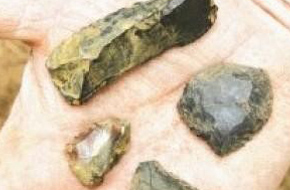
Presenter: Robert Goodby
More than 12,000 years ago, small groups of Paleoindians endured frigid winters on the edge of a small river in what would become Keene, New Hampshire. In 2009, an archaeological survey for the new Keene Middle School discovered the remains of their stay and brought to light one of the oldest Native American sites in New England. The remarkably intact site produced evidence of four separate dwellings containing over 200 stone tools and fragments of burned animal bone. These early people, rather than being isolated stone-age nomads, were part of a social network that extended across much of northeastern North America. The discovery and excavation of the site was required by the National Historic Preservation Act, a frequently maligned piece of legislation that in this instance worked to save an irreplaceable piece of the human story.
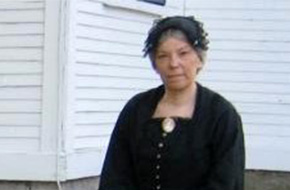
Presenter: Sharon Wood
Speaking as Betsey Phelps, the mother of a Union soldier from Amherst, New Hampshire who died heroically at the Battle of Gettysburg, Sharon Wood offers an informative and sensitive reflection on that sacrifice from a mother's perspective. Wood blends the Phelps boy's story with those of other men who left their New Hampshire homes to fight for the Union cause and of the families who supported them on the home front. This program is only available as an in-person presentation.
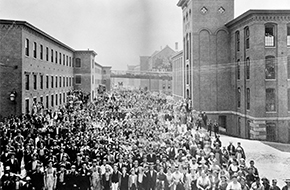
Presenter: Robert B. Perreault
Manchester is one example of the many industrial cities that attracted immigrants from Quebec in numbers large enough to warrant the creation and maintenance of an infrastructure of religious, educational, social, cultural, and commercial institutions that helped preserve this community's language and traditions. Robert Perreault shares stories about life in one of America's major Franco-American centers.
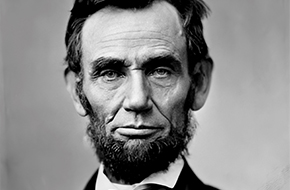
Presenter: Steve Wood
Abraham Lincoln, portrayed by Steve Wood, begins this program by recounting his early life and ends with a reading of the "Gettysburg Address." Along the way he comments on the debates with Stephen Douglas, his run for the presidency, and the Civil War.
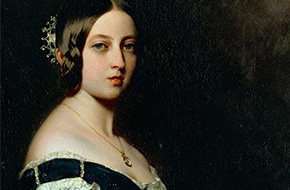
Presenter: Sally Mummey
In 1837, teenaged Victoria ascended to the British throne, untrained and innocent. Those who would try to usurp her power underestimated this self-willed intelligent young woman whose mettle sustained her through her 63-year reign. Using Queen Victoria's diary and letters, this program reveals the personal details of a powerful yet humane woman, who took seriously her role as monarch in a time of great expansion. She and her husband, Albert, set an example of high moral character and dedication, a novelty in the royal house after generations of scandal. Through her children she left a royal legacy; an era bears her name. Sally Mummey performs this living history in proper 19th century clothing resplendent with Royal Orders.
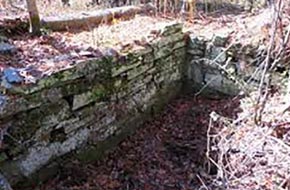
Presenter: Adair Mulligan
Northern New England is full of reminders of past lives: stone walls, old foundations, a century-old lilac struggling to survive as the forest reclaims a once-sunny dooryard. What forces shaped settlement, and later abandonment, of these places? Adair Mulligan explores the rich story to be discovered in what remains behind. See how one town has set out to create an inventory of its cellar holes, piecing together the clues in the landscape. Such a project can help landowners know what to do if they have archaeological sites on their land and help stimulate interest in a town's future through its past.
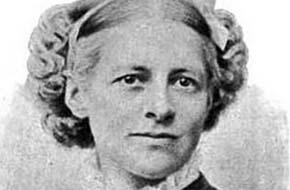
Presenter: Deborah Goss
Deborah Anne Goss appears as Abby Hutchinson Patton, recalling mid-19th-century U.S. and New Hampshire history and performing rousing anthems, heartfelt ballads, and humorous ditties sung during anti-slavery and early women's rights struggles. In the 1840s and 1850s the Hutchinson Family Singers strongly influenced the opinions of the era with their popular songs promoting healthy living and social justice-most prominently the abolition of slavery. Participants are encouraged to join in the singing on several choruses or read a poem or political diatribe of the time.
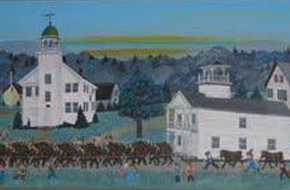
Presenter: Dan Billin
American slavery divided not just the North from the South, but also northerners from each other. In the mid-1830s, the emergence of an aggressive abolitionist movement provoked fierce blowback—including widespread mob violence in the North. Canaan, NH, became one of many New England flashpoints after abolitionists there opened a school for all students, regardless of race or gender. Young Black men and women flocked to Noyes Academy but were soon driven away by a voter-sanctioned mob that dragged their school building a half-mile down the main street and threatened them with death. Students who passed through that fire—Julia Williams, Henry Highland Garnet and Alexander Crummell—went on to extraordinary careers in the fight against slavery and for Black civil rights. Historian Dan Billin presents an illustrated lecture that plumbs the depths of anti-abolitionist sentiment in antebellum New Hampshire and the courage of Black students who were destined for greatness.
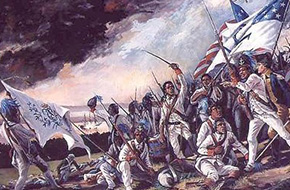
Presenter: Glenn Knoblock
One of the most interesting aspects of the American Revolution is the role played by African Americans in the fight for independence. Both free African Americans and those that were enslaved were key in manning state militias and Continental Army units, as well as serving on the high seas in the Navy and on privately armed ships. Indeed, their service to the colonies was crucial in a conflict that lasted nearly seven years. Prohibited from serving in military units and largely considered "undesirable elements," how is it that these African-American soldiers came to fight for the cause of liberty, even when their own personal liberty was not guaranteed?
Glenn Knoblock examines the history of African-American soldiers' service during the war, including how and why they enlisted, their interaction with white soldiers, service on the battlefields, how they were perceived by the enemy and the officers under whom they served, and their treatment after the war.


Presenter: Maria Sanders
This program explores the powerful intersection between cutting-edge medical technology and the deeply human experience of illness, healing, and care. This program invites participants to look beyond data and devices, toward the values, ethics, and emotions that make health care meaningful. Through engaging presentations and real-world examples, attendees will consider how AI, wearables, and remote monitoring can serve, not overshadow, human dignity, empathy, and storytelling in medicine. With insights from literature, philosophy, and cultural traditions, the program asks: How do we ensure that innovation enhances, rather than erodes, the human connection? Participants will walk away with a deeper understanding of both the promise and the pitfalls of tech-driven health care, and why the humanities must be at the table.
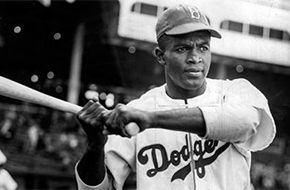
Presenter: Jason Sokol
From Brooklyn to Boston, from World War II to the present, Jason Sokol traces the modern history of race and politics in the Northeast. Why did white fans come out to support Jackie Robinson as he broke baseball's color barrier in 1947 even as Brooklyn's blacks were shunted into segregated neighborhoods? How was African-American politician Ed Brooke of Massachusetts, who won a Senate seat in 1966, undone by the resistance to desegregation busing in Boston? Is the Northeast's history a microcosm of America as a whole: outwardly democratic, but inwardly conflicted over race?
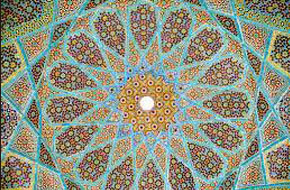
Presenter: Mohamed Defaa
Sufism is the inner dimension of Sunni Islam. Taking its source in the Quran and the Prophetic tradition, it has often been defined as "the science of spiritual states." Proficiency in this practice should enable the initiated to overcome his ego to achieve the knowledge and contemplation of God. Basically, the Sufi aspires to draw from the spiritual influx (baraka) of the Prophet Muhammad, handed down for centuries from master to disciple, to fight against the passions and delusions that beset him. This talk by Mohamed Defaa will highlight the universality of Sufism, and explain how, over the centuries, the great teachers have adapted the doctrines and practices of initiation to the transformations of the Muslim world. It will also show why Sufism plays an increasing role as an antidote against fundamentalism and radicalism.

Presenter: Inez McDermott
By the early 20th century, Cornish, NH, in the shadow of Mount Ascutney, had become a summer haven for artists, writers, architects, musicians and other creative people. At the center of it all was renowned American sculptor, Augustus Saint-Gaudens. While the respite from city life and the area's natural beauty was appealing, even more so was the opportunity for creative people to enjoy each other's company, to share their ideas, to work hard and play hard, all within a days journey to New York and Boston. Explore the art and life of Augustus Saint-Gaudens, and learn about some of the creative artists, writers, architects and others who were drawn to the area.
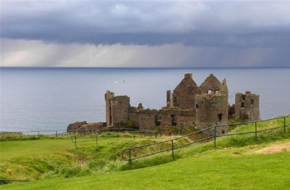
Presenter: Mary C. Kelly
Centuries of rebellion and political turmoil make up Ireland’s long campaign for nationhood. Since the 1100s, ancient Irish folk traditions and monastic settlements preserved Gaelic culture through a succession of Viking, Norman and British colonization waves. This presentation explores a storied history of struggle from the Gaelic chieftains to the Ireland of today, using contemporary texts and colorful illustrations depicting centuries of leadership, military confrontation, and political transition. From Strongbow to the IRA, and from Wolfe Tone’s United Irishmen to the tense drama of the 1916 Rising, we encounter the key players, contending traditions, and political forces that finally made Ireland “A Nation Once Again.”
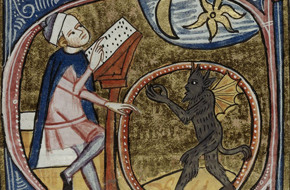
Presenter: Alexandria Peary
Are you your own worst critic when it comes to your writing? Do you lug around criticism that you received maybe years ago—or even last week? We’ll discuss how to notice and manage negative self-talk and distance ourselves from tricky audiences-in-the-head. If you’ve been slogging through a writing task (academic, creative, professional, personal), a powerful transformation happens by switching attention to the present moment. The battle with self-doubt or procrastination turns into a temple of focused calm. Mindfulness lets us befriend ourselves as we write. By learning to treat ourselves with grace and acceptance, time at the desk becomes a form of cherished self-care. This session provides an overview of mindful writing as well as hands-on practice with techniques easily replicated later at home.
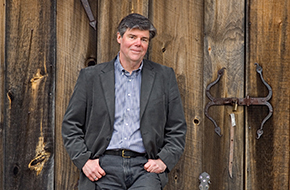
Presenter: Jeff Warner
Traditional songs, rich in local history and a sense of place, present the latest news from the distant past. They help us to interpret present-day life with an understanding of the working people who built our country. Tavern songs, banjo tunes, 18th century New England hymns, sailor songs, and humorous stories about traditional singers and their songs highlight this informative program by Jeff Warner.
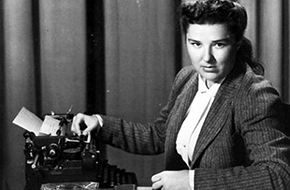
Presenter: Robert B. Perreault
Grace DeRepentigny Metalious believed that in rejecting her own ethnic and religious heritage, she would come closer to inheriting the "American Dream." Her Quebecois ancestry and her formative years in Manchester reveal aspects of the author that the public rarely knew. Robert Perreault focuses on Metalious's most autobiographical and ethnically-oriented but little-known novel, No Adam in Eden.
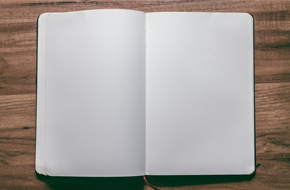
Presenter: Alexandria Peary
Do you have something in you that wants to be written? It doesn’t matter what kind of writing—poem, novel, memoir, speech, newspaper article, or workplace document—you feel a tug to express. For many of us, beginning a new piece of writing can be daunting. How to bring this inchoate sensation to form and structure? We often waste time psyching ourselves up or fantasizing about the perfect final draft. This presentation helps you enter the present moment and begin writing that piece, maybe one you’ve been contemplating for years, within minutes. Every moment is perfect for writing: starting means entering an ongoing river of language. Among several techniques, we’ll practice moment tracking to jumpstart that dream project and embrace where it takes us. This presentation focuses on prewriting and invention, the earliest phases of writing, and welcomes verbal emptiness to develop equanimity.
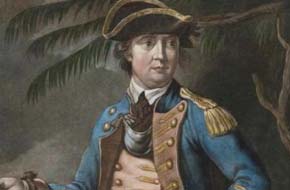
Presenter: George Morrison
We all think we know the story of Benedict Arnold, the American Revolutionary War general who fought for the Continental Army but then defected to the British. Recalled mainly as a traitor for his 1780 defection, Arnold had risked his life and fortune for American freedom in courageous exploits between 1775 and 1778, when the dream of independence was at its most fragile. As an officer in the Continental Army, Arnold ably led American forces in desperate circumstances against impossible odds, in a blinding snowstorm, through a howling wilderness, and against the extraordinary might of the Royal Navy. George Morrison will take you on a journey through New England, Canada, and New York tracing the complex story of this infamous American icon.
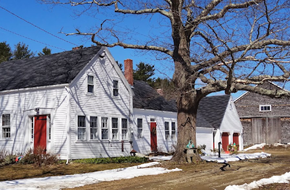
Presenter: Thomas Hubka
Through architecture unique to northern New England, this illustrated talk focuses on several case studies that show how farmers converted their typical separate house and barns into connected farmsteads. Thomas Hubka's research in his award-winning book, Big House, Little House, Back House, Barn: The Connected Farm Buildings of New England, demonstrates that average farmers were, in fact, motivated by competition with farmers in other regions of America, who had better soils and growing seasons and fewer rocks to clear. The connected farmstead organization, housing equal parts mixed-farming and home-industry, was one of the collective responses to the competitive threat.

Presenter: Liz Tentarelli
Join us for a book discussion of Book of Ages: The Life and Opinions of Jane Franklin by author Jill Lepore. This book is a revelatory portrait of Benjamin Franklin's youngest sister and a wholly different account of the founding of the United States.
Disabled access including an elevator are available. The registration form includes a place to let library staff know your needs (optional).
Overflow parking is available at Lyme School across the street.
Refreshments will be served.

Presenter: Liz Tentarelli
Join us for a book discussion of The Gilded Suffragists. This is a nonfiction title that tells the story of the NY socialites who turned feminism into a fashionable revolution to achieve the right to vote, by author Johanna Nueman.
This event is hosted by the Philbrick-James Library (4 Church Street), and held at the Deerfield Town Hall (10 Church Street), which is located down the street on the same side of the street as the library. This building is accessible by ramp and has ample parking.
Snow/inclement weather date: Tuesday April 7th, 2026 at 6:00pm
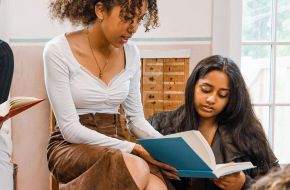
Presenter: Mohamed Defaa
Mohamed facilitates fiction and non-fiction books related to the Middle East. If your organization is interested in reading books on the Middle East, please contact Mohamed directly to confirm interest and availablity.
Contact
Mohamed Defaa
Merrimack, NH 03054
mdefaa@gmail.com
Work Phone: 603-424-6204
Cell Phone: 603-930-9765
Available Program Formats: In person or online
Book Groups offer an opportunity for participants to engage with diverse perspectives in the humanities through literature to build understanding, empathy, and to support a culture of reading in the Granite State. New Hampshire Humanities provides expert facilitators; host organizations must provide the books.

Presenter: Damian Costello
Damian facilitates discussions on books relating to Indigenous culture/tradition, philosophy, and religion spirituality. If you are interested in reading books on these topics, please reach out to Damian directly to confirm interest and availablity.
Contact
Damian Costello
Montpelier, VT 05602
dcostello@naiits.com
(802) 598-6777
Available Program Formats: In person or online
Book Groups offer an opportunity for participants to engage with diverse perspectives in the humanities through literature to build understanding, empathy, and to support a culture of reading in the Granite State. New Hampshire Humanities provides expert facilitators; host organizations must provide the books.

Presenter: Liz Tentarelli
Liz facilitates non-fiction book discussions relating to historical topics. If you are interested in reading books on historical non fiction topics, please reach out to Liz directly to confirm interest and availablity.
Contact
Liz Tentarelli
Newbury, NH 03255
LWV@kenliz.net
Available Program Formats: In person or online
Book Groups offer an opportunity for participants to engage with diverse perspectives in the humanities through literature to build understanding, empathy, and to support a culture of reading in the Granite State. New Hampshire Humanities provides expert facilitators; host organizations must provide the books.

Presenter: Kiki Berk
Kiki facilitates discussions on books relating to philosophy, science fiction, and fiction. If you are interested in reading books on any of these topics, please reach out to Kiki directly to confirm interest and availablity.
Contact
Kiki Berk
k.berk@snhu.edu
Book Groups offer an opportunity for participants to engage with diverse perspectives in the humanities through literature to build understanding, empathy, and to support a culture of reading in the Granite State. New Hampshire Humanities provides expert facilitators; host organizations must provide the books.

Presenter: Joshua Tepley
Joshua faciliates book groups related to philosophy, speculative fiction and short stories. If you are interested in reading books on these topics, please reach out to josh directly to confirm interest and availablity.
Contact
Joshua Tepley
jtepley@anselm.edu
Book groups offer an opportunity for participants to engage with diverse perspectives in the humanities through literature to build understanding, empathy, and to support a culture of reading in the Granite State. New Hampshire Humanities provides expert facilitators; host organizations must provide the books.

Presenter: Mary C. Kelly
Mary facilitates discussions on popular history books. If you are interested in reading books on popular history (fiction or non fiction), please reach out to Mary directly to confirm interest and availablity.
Available Program Formats: Illustrated online presentations with flexible scheduling options. April-October in-person presentations within a 20-mile radius of Keene, NH. Weekend scheduling available for all programs.
Book Groups offer an opportunity for participants to engage with diverse perspectives in the humanities through literature to build understanding, empathy, and to support a culture of reading in the Granite State. New Hampshire Humanities provides expert facilitators; host organizations must provide the books.

Presenter: Carrie Brown
Carrie facilitates discussions on books relating to the theme of “coming of age in America.” This includes classic literature. If you are interested in reading books on these topics, please contact Carrie directly to confirm interest and availablity.
Contact
Carrie Brown
Enfield, NH 03748
csb@carrie-brown.com
Cell Phone: 603-359-3072
Available Program Formats: In person or online presentations. Virtual only December through March.
Book Groups offer an opportunity for participants to engage with diverse perspectives in the humanities through literature to build understanding, empathy, and to support a culture of reading in the Granite State. New Hampshire Humanities provides expert facilitators; host organizations must provide the books.
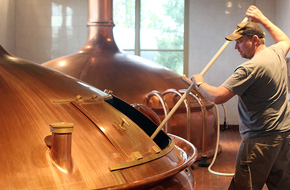
Presenter: Glenn Knoblock
Glenn Knoblock explores the fascinating history of New Hampshire's beer and ale brewing industry from Colonial days, when it was home- and tavern-based, to today's modern breweries and brew pubs. Unusual and rare photos and advertisements document this changing industry and the state's earliest brewers, including the renowned Frank Jones. A number of lesser-known brewers and breweries that operated in the state are also discussed, including the only brewery owned and operated by a woman before the modern era. Illustrations present evidence of society's changing attitudes towards beer and alcohol consumption over the years. Whether you're a beer connoisseur or a "tea-totaler", this lecture will be enjoyed by adults of all ages.
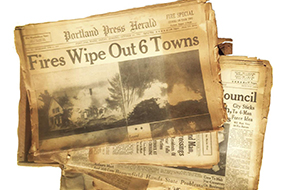
Presenter: Jo Radner
In October 1947, in just a few hours, a terrible wildfire destroyed almost all of the town of Brownfield, in western Maine, including all its churches, schools, post offices, and other public buildings. In the face of the fire, Brownfield residents responded with courage, care, and, in some cases, obstancy—retired schoolteacher Mabel Stone, for instance, chose to stay home with her beloved dog Woofie and fight the fire with a broom, a bucket of water, and her snow rake. Confronting the devastation after the fire, neighbors ingeniously made do, shared what they had, and rebuilt what they could. Jo Radner spent a year interviewing people who experienced the Brownfield Fire, and from those interviews, letters, historical photographs and newspaper reports, created a powerful story of terror, courage, neighborly responsibility, recovery, and – yes – even humor.

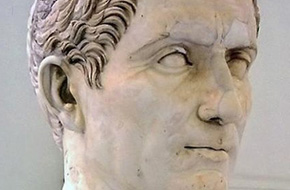
Presenter: Sebastian Lockwood
Meet Caesar, who is descended from the Goddess Venus. This program introduces Caesar as a young boy living with his Mother, Aurelia, and his Aunt Julia, two women who will shape the boy who will be the most powerful man on earth. Using a rich variety of texts, Sebastian Lockwood shows Caesar as a man who clearly saw his destiny and fulfilled that destiny with the help of remarkable women – Cleopatra amongst them. A poet, historian, linguist, architect, general, politician, and engineer, was he truly of the Populi party for the People of Roma? Or a despot and tyrant? This performance shows Caesar as a remarkable genius who transformed his world in ways that still resonate today.
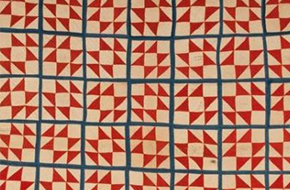
Presenter: Pamela Weeks
Quilts made for use by soldiers during the Civil War are very rare-only twenty are known to exist, and Pam Weeks has studied most of them in person. This illustrated lecture outlines the origins of the U. S. Sanitary Commission at the beginning of the Civil War and examines the roles women played on the home front, and as nurses. The stories of fourteen actual Civil War soldiers' quilts will be highlighted in this program.
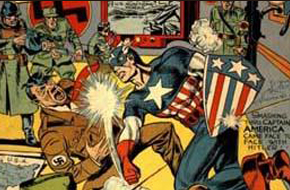
Presenter: Marek Bennett
Marek Bennett presents a whirlwind survey of comics from around the world and throughout history, with special attention to what these vibrant narratives tell (and show) us about the people and periods that created them. Bennett engages and involves the audience in an interactive discussion of several sample comics representing cultures such as Ancient Rome, Medieval Europe, the Ancient Maya, Feudal and modern Japan, the United States in the early 20th century, and Nazi Germany during World War II. The program explores the various ways of creating and reading comics from around the world, and what these techniques tell us about the cultures in which they occur.
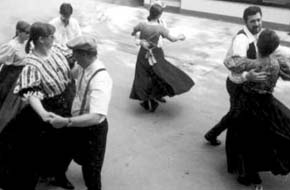
Presenter: Dudley Laufman
Since the late 1600s, the lively tradition of contra dancing has kept people of all ages swinging and sashaying in barns, town halls, and schools around the state. Contra dancing came to New Hampshire by way of the English colonists and remains popular in many communities, particularly in the Monadnock Region. Presenter Dudley Laufman brings this tradition to life with stories, poems and recordings of callers, musicians, and dancers, past and present. Live music, always integral to this dance form, will be played on the fiddle and melodeon.
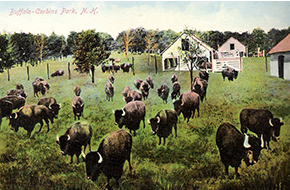
Presenter: Mary Kronenwetter
In the late 1800s, the banking, railroad, and real estate mogul Austin Corbin returned to his hometown in Newport, New Hampshire. He built a grand estate and bought out his neighbors’ farms to create an 22,000 acre wildlife game preserve stocked with boar, bison, bighorn sheep, antelope, elk, Chinese pheasant, and other imported animals. The grounds eventually became a prestigious private hunting park and hosted illustrious guests including Theodore Roosevelt, the Prince of Wales, Cornelius Vanderbilt, Joe Dimaggio, Rudyard Kipling, and Augustus Saint-Gaudens.
This illustrated slideshow features archival images and a discussion of the complicated history and legacy of New Hampshire’s own American Gilded Age robber baron. The talk will also highlight the important legacy of the role the Corbin family and park naturalist Ernest Baynes played in the saving of the American bison from extinction.
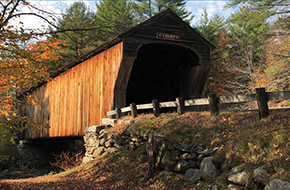
Presenter: Kim Varney Chandler
New Hampshire was once home to over 300 covered bridges. Today, there are over sixty authentic covered bridges in New Hampshire, forty-six of which are over a century old. These bridges exist solely because of the efforts of a small but powerful community that both recognized their significance and honored their tradition. Join author and photographer Kim Varney Chandler as she shares an overview of covered bridges in the Granite State, along with interesting facts she uncovered while researching her 2022 book, Covered Bridges of New Hampshire. Learn more about both existing and lost covered bridges in your area.
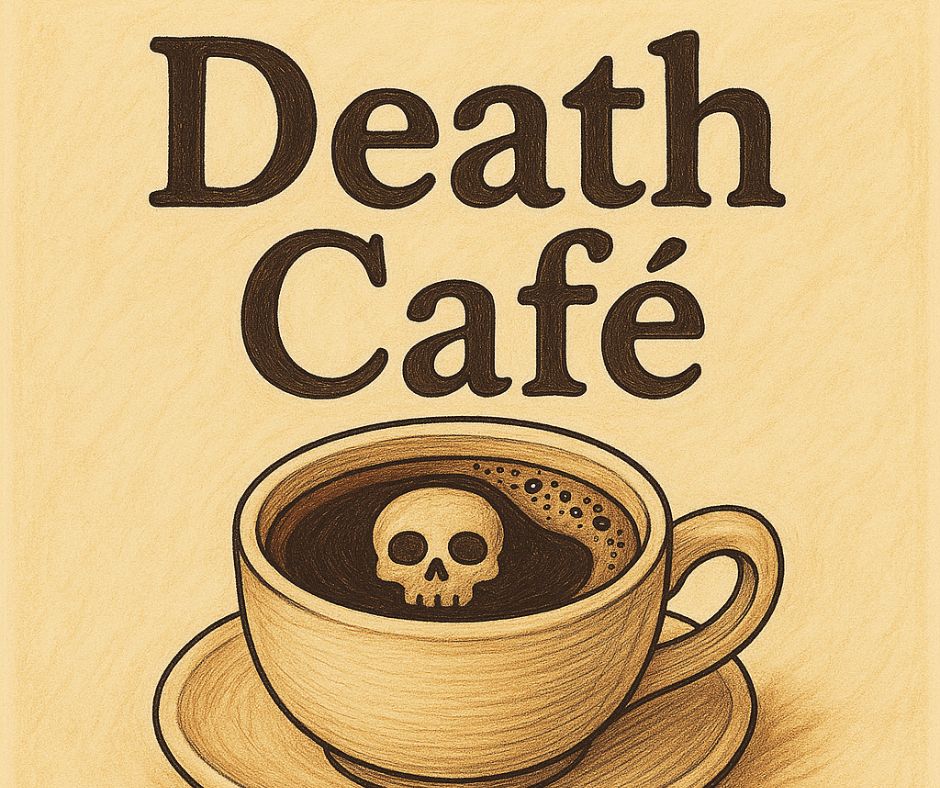
Presenter: Kiki Berk
Death Cafés offer opportunities for people who don’t know each other to come together, share tea and cake, and talk openly about death. These gatherings have no agenda, lecture, or set theme (other than death itself); instead, they are participant-driven conversations where individuals can share experiences, ask questions, and reflect together. The goal is to normalize discussions about death in our (often) death-denying culture, while encouraging deeper thought about life and how we might live it more fully.
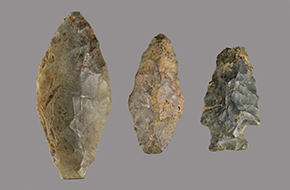
Presenter: Robert Goodby
Abenaki history has been reduced to near-invisibility as a result of conquest, a conquering culture that placed little value on the Indian experience, and a strategy of self-preservation that required many Abenaki to go "underground," concealing their true identities for generations to avoid discrimination and persecution. Robert Goodby reveals archaeological evidence that shows their deep presence here, inches below the earth's surface.
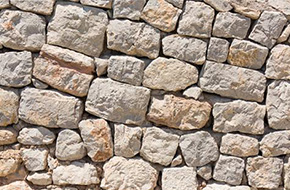
Presenter: Kevin Gardner
Why are we so fascinated with stone walls? Kevin Gardner, author of The Granite Kiss, explains how and why New England came to acquire its thousands of miles of stone walls, the ways that they and other dry stone structures were built, how their styles emerged and changed over time, and their significance to the famous New England landscape. Along the way, Kevin occupies himself building a miniature wall or walls on a tabletop, using tiny stones from a five-gallon bucket.
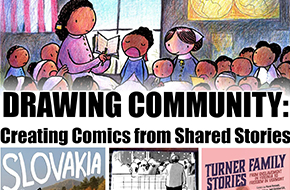
Presenter: Marek Bennett
From the simplest stick figures to the flashiest modern manga, cartooning and comics have long offered us powerful ways to look at and define ourselves and our communities. What does it mean to “draw together” in community, and how does the act of creating art help us move from “MY story” and “YOUR story” to “OUR story”? Join New Hampshire cartoonist Marek Bennett as he shares lessons from his award-winning work on graphic novels and webcomics like The Most Costly Journey (El viaje más caro), the long-running series The Civil War Diary of Freeman Colby, and more. Through sample artwork, historical source materials, and live cartooning demonstrations, this program looks at how collaborative cartooning — “drawing together” — helps us explore identities, share perspectives, and deepen connections in our communities.

Presenter: Mary Kronenwetter
Ernest Harold Baynes is fondly remembered in New Hampshire as our own Doctor Dolittle. To the rest of the nation, he is known as an important early 20th century wildlife conservationist. A self-taught naturalist, he wrote and lectured extensively on animal behavior, bird and bison restoration, the role of animals in WWI, and vivisection. Baynes shared his New Hampshire home with tame bear, fox, boar, bison, and wolf. He fought to end the trade in bird feathers for fashion and established one of the first bird sanctuaries in America. While serving as conservator to the Corbin Park bison herd, he convinced President Theodore Roosevelt to support the preserving of the American bison from extinction through the founding of the American Bison Society. Baynes’ work inspires us to consider how we intervene to help wildlife recover from the harms inflicted on them by humans. This illustrated lecture includes archival Baynes photographs from the Plainfield Historical Society collection.

Presenter: Herman Tavani
Information technology, biotechnology, and nanotechnology have converged in ways that were not easily anticipated. As a result, new fields of applied ethics, such as digital ethics and AI ethics, have also emerged in response to the cluster of ethical problems generated by recent technologies. Herman Tavani examines a range of ethical issues – from privacy and autonomy to trust and dependency. He also considers the question: What does it mean to be human in an age of AI and Chatbots?
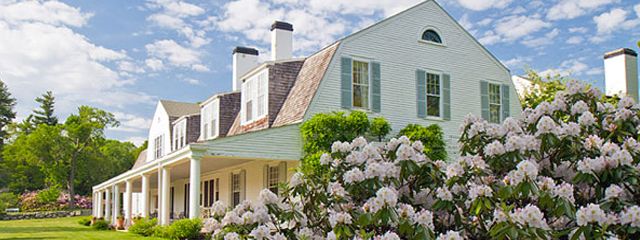
Presenter: Cristina Ashjian
In the early 20th century, the New Hampshire Board of Agriculture launched a program to boost the rural economy and promote tourism through the sale of abandoned farms to summer residents. After introducing the country house movement, Cristina Ashjian focuses attention on some of the great country estates featured in the New Hampshire program between 1902 and 1913.
Which private estates were recognized as exemplary, and who were their owners? Using historic images and texts, Ashjian discusses well-known estates now open to the public such as The Fells on Lake Sunapee, The Rocks in Bethlehem, Saint-Gaudens National Historic Site in Cornish, and she includes local examples when possible.
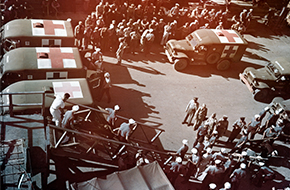
Presenter: Michael Tougias
We have all heard amazing stories of survival that rendered us awestruck. But too often, we don't realize that there is a wealth of information to learn from people who make it to the other side of life's most daunting challenges. In this presentation, New York Times bestselling author Michael J. Tougias captivates the audience by chronicling harrowing survival stories and discusses the lessons learned. Tougias has interviewed over 100 people who survived against all odds, and researched many historical figures who have achieved the near impossible. He supplements their stories with a handful of first person accounts from some of the toughest survivors in history, including John McCain, Mary Rowlandson (captive during King Philip's Indian War), Howard Blackburn, Captain Bligh, Holocaust survivor Viktor Frankl, mountainman Hugh Glass, Admiral Byrd, Shackleton, WWII pilot James Whittaker, Teddy Roosevelt, USS Indianapolis survivors, and many more from mountain climbers to early explorers of the new world.
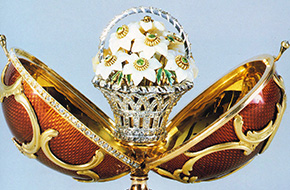
Presenter: Marina Forbes
This unique and beautifully illustrated presentation focuses on the life and remarkable work of master jeweler and artist, Peter Carl Fabergé. The program features a spectacular photo tour of Fabergé collections at world-famous museums and from private collectors around the world. Emphasis is on the important role of egg painting in Slavic culture and on the unique development of this major art form from a traditional craft to the level of exquisite fine art under the patronage of the tsars. The fascinating history of these eggs and their role in the dramatic events of the last decades of Romanov rule in Russia and in the years following the Bolshevik Revolution will also be discussed.
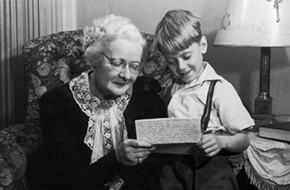
Presenter: Jo Radner
Telling personal and family stories is fun – and much more. Storytelling connects strangers, strengthens links between generations, and gives children the self-knowledge to carry them through hard times. Knowledge of family history has even been linked to better teen behavior and mental health. In this active and interactive program, storyteller Jo Radner shares foolproof ways to mine memories and interview relatives for meaningful stories. Participants practices finding, developing, and telling their own tales.
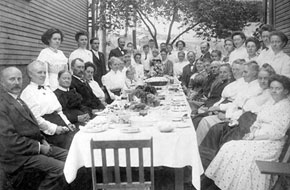
Presenter: Maura MacNeil
What family stories do you carry with you? What story do you tell over and over? What landscape do you cherish the most? One of the deepest human instincts is to tell our life stories, to figure out who we are and what it means to be human. This interactive workshop led by Maura MacNeil explores how the landscapes of our lives shape the stories that we tell. Participants explore the themes of family, memory, and place through sample narratives and a series of short writing exercises, gaining a deeper awareness of how their stories can preserve personal, generational, and communal history.
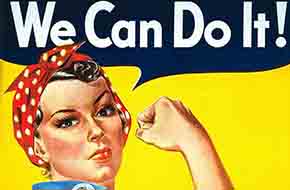
Presenter: Jane Oneail
Women have long been the subject of art, often depicted as nothing more than objects of desire. How do images of women change when women become the creators? This program examines the history of women in art in brief and then explores the lives, careers and works of several major women artists from the Renaissance to the twentieth century. Artemisia Gentileschi, Mary Cassatt, and Frida Kahlo are some of the artists discussed in this program.
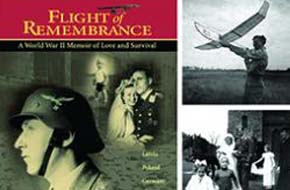
Presenter: Marina Dutzmann Kirsch
The true story of the speaker's family from the Axis side of WWII in Latvia, occupied Poland, and Germany—a story that includes two German veterans and provides a perspective seldom heard in the U.S. Though they did not support Hitler or join the Nazi Party, the speaker's father and grandfather, both technically skilled, were forced to serve in the German military after fleeing from Latvia to Germany before the first Soviet takeover of the Baltic States. As of 2022, the presentation includes new maps and parallels between the experiences of the speaker's family in WWII and those of Ukrainians today.
By giving a face and name to "the enemy," the presentation offers a seldom-shared perspective on the most devastating world conflict of all time, and sheds light on what it was like to live through war waged on home soil. Flight of Remembrance is a story of love, survival, and a lifelong dream for a career in aeronautical engineering that expanded to a key role in the emerging U.S. space program.
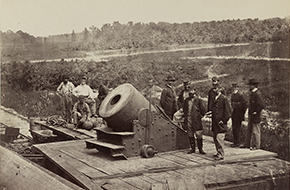
Presenter: Carrie Brown
Carrie Brown explores the technological triumph that helped save the Union and then transformed the nation. During the Civil War, northern industry produced a million and a half rifles, along with tens of thousands of pistols and carbines. How did the North produce all of those weapons? The answer lies in new machinery and methods for producing guns with interchangeable parts. Once the system of mass production had been tested and perfected, what happened after the war?
In the period from 1870 to 1910 new factory technology and new print media fueled the development of mass consumerism. While this program tells a broad, national story, it focuses on the critical and somewhat surprising role of Vermont and New Hampshire in producing industrial technology that won the war and changed American life.
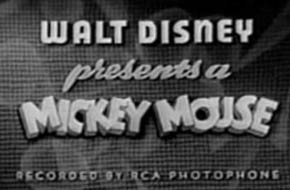
Presenter: Margo Burns
From the 1920s to the 1960s, adult American theatergoers could anticipate a cartoon before each feature film. From Mickey Mouse to Donald Duck, Popeye, Betty Boop, Bugs Bunny, Daffy Duck, Tom and Jerry, Mighty Mouse, Casper the Friendly Ghost, and Mr. Magoo, the beloved cartoon "stars" were every bit as memorable as the Hollywood actors who shared the marquee. Many of these cartoons were redistributed as Saturday morning shows for kids of the next generation.
Margo Burns offers an introduction to the people and studios that made these films and the changing technology, aesthetics, music, politics, and economics behind them, showing stills, characters, and clips from many of these beautifully hand-drawn films. At the end of her program, participants are treated to one of the classics in its entirety.
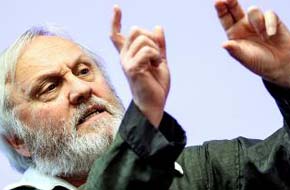
Presenter: Michael Francis
The Starry Messenger, presented by Michael Francis, is a dramatic fun-filled adaptation of Galileo's short treatise "Siderius Nuncius." Galileo (dressed in 17th-century costume) arrives to present a public lecture on his most recent discoveries made using his newly-devised spyglass. As he describes those discoveries, Galileo's new method of observation and measurement of nature become apparent. Throughout the presentation audience members are actively involved in experiments and demonstrations. After the lecture, Galileo answers questions about his experiments, his life, and his times.
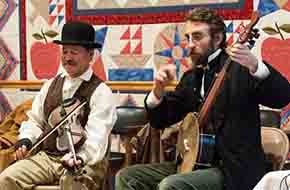
Presenter: Marek Bennett
Marek Bennett will deliver an engaging overview of global politics prior to the American Civil War through the lens of early banjo music. Between 1820 and 1860, the banjo transformed from a slave instrument found only on Southern plantations to an international pop phenomenon: songs and playing techniques carried far and wide in the emerging global economy, from the streets of New York's Five Points slum to the gold fields of California and the elite drawing rooms of London, from the battlegrounds of Nicaragua to official diplomatic receptions in Japan. How did this African-derived, slave-borne folk instrument come to symbolize all the best and worst of a young United States of America?
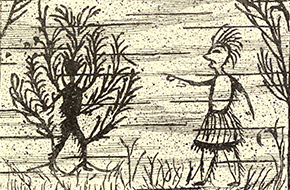
Presenter: Anne Jennison
In this traditional Wabanaki storytelling presentation, Anne Jennison will introduce Gluskabe, who is at the center of an entire body of lesson stories that are central to the Wabanaki cultures of New Hampshire and the Northeast. Gluskabe is not the Creator, nor is he human; rather he is somewhere in between. Gluskabe has magical powers, is as tall as the white pine trees, and a friend to the Alnobak (the human beings). Layered with multiple embedded meanings, Gluskabe stories reveal the central spiritual and ethical beliefs of the Wabanaki peoples. They teach traditional Wabanaki understandings about how to live in harmony and balance with Mother Earth – and what kinds of things can happen when that balance is disrupted. Each time a Gluskabe story is heard, something new can be discovered.

Presenter: Nicole Ruane
Do the three major monotheistic religions worship the same deity? Nicole Ruane traces the rise of the deity who comes to be known as The Lord, God the Father, and Allah from his earliest form as a young god (known as Yah, Yahu or Yahweh) in the area of Syria-Palestine, later merged with the father deity of the local pantheon known as El, and on across the Middle East and through the centuries. Judaism, Christianity, and Islam spread knowledge of this deity, in his various forms, throughout the world. The program will end by examining the question of whether these three religions worship the same deity or whether their understandings of the divine are sufficiently different that they refer to different gods.
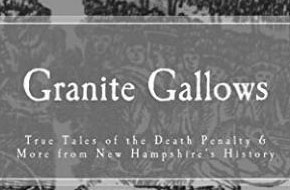
Presenter: Chris Benedetto
As one of the last northeastern states with capital punishment still on the books and with its first person on death row since 1939, New Hampshire continues to struggle with this controversial issue. Chris Benedetto examines the history of the death penalty in New Hampshire and the major legal and social issues which challenged our predecessors, revealing that many of these issues still haunt us today.

Presenter: Jane Oneail
New Hampshire has attracted and inspired artists since the colonial era. What is distinctive about the art made here? This program will consider works by itinerant and folk painters, landscape artists drawn to the state's scenic vistas, and modern artists that adopted bold styles to depict everyday life in the Granite State. Augustus Saint-Gaudens, Childe Hassam, and Maxfield Parrish are some of the artists discussed in this program.
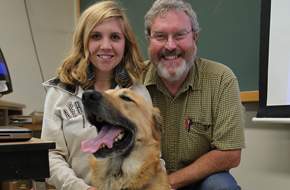
Presenter: Bob Cottrell
This program looks at how dog sledding developed in New Hampshire and how the Chinook played a major role in this story. Explaining how man and his relationship with dogs won out over machines on several famous polar expeditions, Bob Cottrell covers the history of Arthur Walden and his Chinooks, the State Dog of New Hampshire.
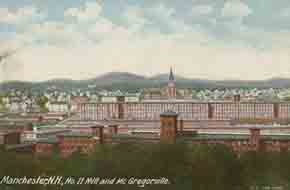
Presenter: Robert B. Perreault
Post cards have many a story to tell about the built landscape, disastrous events such as fires or floods, daily folk customs, and the identity of place. During the golden age of the post card, before telephones, personal messages could contain anything from the mundane, "Having a fine time, wish you were here..." to more profound reflections on family life or colorful portraits of towns and cities from the perspective of newly-landed immigrants. Robert Perreault presents vintage post cards of Manchester offer a lively, nostalgic adventure through a major industrial center, home to people from around the world.
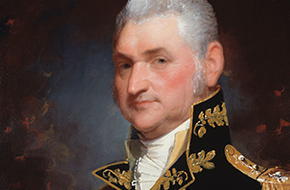
Presenter: George Morrison
In this presentation, George Morrison explores the life and career of Henry Dearborn, born in North Hampton, New Hampshire in 1751. He began his career as a young doctor before joining the the Contintental Army, where he served for over eight years. Post-war he served two terms in Congress, later as a cabinet secretary, and was, before retiring in 1824, President Monroe’s Minister to Portugal. But in 1818 he found himself in the middle of a controversy that would extend to 1843. Would you rather be elected governor, or insist on telling the truth?
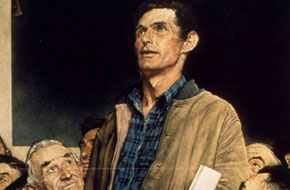
Presenter: Jane Oneail
America's most beloved illustrator created dozens of images related to the second World War. What happens when an artist known for his use of humor tackles the serious subject of war? This program explores how Norman Rockwell's work departs from earlier artistic interpretations of American conflicts and considers how and why he chose specific wartime themes to present to the millions of readers of The Saturday Evening Post.
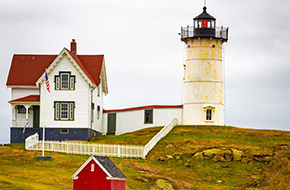
Presenter: Jeremy D'Entremont
Jeremy D'Entremont highlights the fascinating stories of the lighthouse keepers and their families who, beginning in 1771, mainainted the lighthouses between Portsmouth, New Hampshire, and York, Maine: Portsmouth Harbor Light, Whaleback Light, White Island (Isles of Shoals) Light, Boon Island Light, and Cape Neddick "Nubble" Light. The histories of these lighthouses and their keepers reveal rich human interest stories and fascinating lore, from rescues and heroism to isolation and tragedy, and even ghost stories. The program also explores ongoing efforts to preserve these iconic maritime sentinels today.
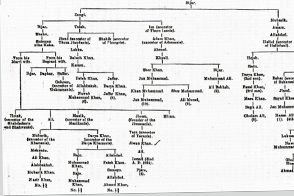
Presenter: Erin Moulton
Are you interested in family history? Do you spend a lot of time in graveyards wondering about the names behind the stones? Then you just might be a genealogy enthusiast! Genealogy is the exploration of ancestral lines and can be done through countless records, resources and artifacts. Join us to explore useful methods for research planning through the case study of Elsie Gaskin (an eccentric librarian from New Hampshire) and become a better researcher along the way.
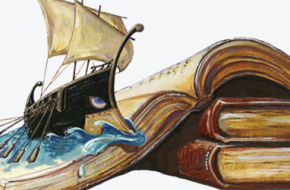
Presenter: Sebastian Lockwood
Using the well known scenes of The Odyssey, Sebastian Lockwood delivers the passion and intensity of the great epic that deserves to be heard told as it was by bards in the days of old. Lockwood says, "The best compliment is when a ten-year-old comes up and says, 'I felt like I was there.'" That is the magic of the performance that takes students and adults alike back into the text. The following Q & A can focus on translations and the storytelling techniques used by Homer.
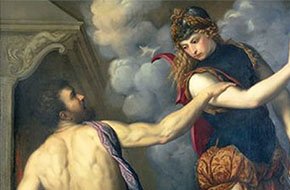
Presenter: R. Scott Smith
Greek myth exerted a powerful influence on the Greeks and Romans, and as cultures and circumstances changed, different methods developed to incorporate mythology. Perhaps most notably, says presenter R. Scott Smith, Christians adopted and adapted Greek myths by allegorizing the stories, seeking to uncover the real and Christian truths underneath the facade of pagan gods and heroes. Some Greeks tried to rationalize the stories, imagining that they were simply ordinary events that were blown out of proportion. Others saw myth as pseudo-history, or sometimes pseudo-science. This program will investigate the major ways that the Greeks tried to explain and interpret their own mythical past over the course of a thousand years.

Presenter: Meg Mott
Deliberation is the practice that holds our democracy together, but does it always lead to better decisions? When citizens only talk to like-minded citizens, the thinking gets stuck and the decisions tend to be more extreme. This presentation gives participants a chance to find new ways to think about a contentious issue using the basic principles of the Constitution: freedom of speech and due process. Instead of carving out one’s (predictable) position in the culture wars, we’ll look at the best arguments on a contentious issue from the view point of progressives, conservatives, and libertarians. By the end of the discussion, participants will have a greater understanding of how the Constitution can help us to foster political friendships.

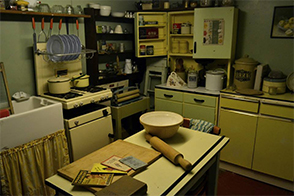
Presenter: Thomas Hubka
In 1900, the average American family still lived by kerosene light, ate in their kitchen, and used an outhouse. In 1940, electric lights, dining rooms, and bathrooms were the norm as the traditional working-class home was fast becoming modern. This lecture will tell the story of how average Americans, including Granite Staters, transformed their typical dwellings from a primitive, premodern home life into an industrialized, modern domesticity–a transformation without precedent, either before or after, in American history. Come hear Professor Hubka's telling of how a "middle majority" of Americans first obtained modern domestic improvements at the beginning of the 20th century.
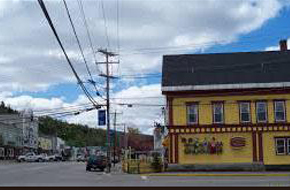
Presenter: Richard Adams Carey
On August 19, 1997, in little Colebrook, New Hampshire, a 62-year-old carpenter named Carl Drega, a man with long-simmering property rights grievances, murdered state troopers Scott Phillips and Les Lord at a traffic stop in a supermarket parking lot. Then Drega stole Phillips's cruiser and drove downtown to settle some old scores. By the end of the day three more were dead, Drega among them, and four wounded. Occurring on the eve of America's current plague of gun violence, this tragic event made headlines all over the world and shocked New Hampshire out of a previous innocence. Touching on facets of North Country history, local governance, law enforcement, gun violence, and the human spirit, Richard Adams Carey describes a community that was never a passive victim but rather a brave and resilient survivor.
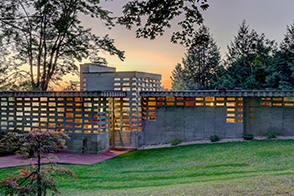
Presenter: Jane Oneail
America’s most famous architect, Frank Lloyd Wright, created iconic modern buildings across the country, including Fallingwater in Mill Run, PA and the Guggenheim Museum in NYC. What do his revolutionary works look like in New Hampshire and how are they representative of his novel ideas about home design? This fun and facscinating presentation offers an introduction to a world-famous architect, highlights his local work – two examples of the Usonian, his final house type, are in Manchester, NH – and explores how design impacts the ways we live in our homes.
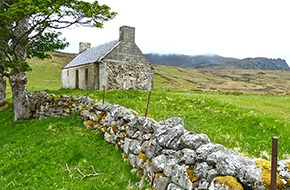
Presenter: Mary C. Kelly
Just as the Declaration of Independence inaugurated a new American nation, Ireland’s Great Famine of 1845-1852 transformed American streetscapes with an extraordinary Irish influx. This illustrated presentation reveals human floodtides who escaped Ireland’s ravaged countryside on grim “coffin ships” and found refuge in teeming American tenements. From images of Ireland’s devastation and the unwelcome Catholic Irish presence in American harborsides, we examine the complexities of Famine remembrance and the place of the episode in the lives of Irish exiles in America. From there, we encounter powerful sources of ethnic Irish political and cultural advancement over 20th century decades, from John L. Sullivan to the Kennedys and beyond, as we track the Famine’s memory and meaning through subsequent generations.
As we contemplate almost two centuries of Irish American achievement in politics, education, labor, faith, and sports through the lens of Famine remembrance and commemoration, we may also reflect on American progress to independence and the upcoming 250th anniversary. This program invites you to experience Ireland’s Famine as a crucial episode for the Irish in America, and understand how its legacy continues to shape what it means to be Irish-American as the US marks its 250th anniversary.

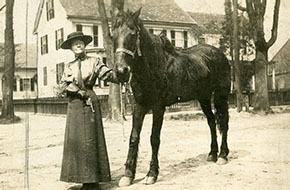
Presenter: Jennifer Carroll
Jennie Powers took a stand against social vices in New Hampshire and Vermont in the early twentieth century. She was a humane society agent in Keene from 1903-1936 and one of the first humane society agents to become a deputy sheriff in New Hampshire. Jennie was known across the country as "The Woman Who Dares" cited by the Boston Post newspaper in 1906 as having arrested more men than any other woman in America. As a photographic activist, she used her camera to document animal cruelty, family violence, and wide-spread poverty in New Hampshire's Monadnock region and beyond. This one-hour illustrated presentation from Jenna Carroll introduces us to Jennie's life story, the work of humane societies at the turn of the twentieth century, and the politics of the Progressive Era (1890s-1920s) from a local perspective.

Presenter: Andrew Pinard
Jonathan Harrington (1811-1881) was one of the earliest American magicians. Born in Boston, Harrington began his performing career as a ventriloquist in 1826, and subsequently added fire resistance, conjuring, mimicry, and exhibitions to his performances, eventually focusing on magic. He toured annually and was well-known throughout New England and beyond. His success allowed him to purchase the New England Museum where he presented shows and exhibitions. Andrew Pinard transforms into Harrington through character and period costume to present mysteries and wonders from the nineteenth century with the help of audience members. This presentation on Jonathan Harrington will reveal new information about a performer that had an impact for decades after his passing, including a demonstration of a piece that Harrington likely performed. This is a presentation with demonstration in costume and character, not a full magic show.
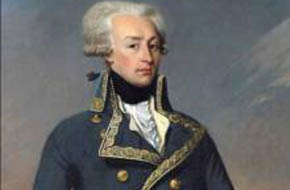
Presenter: Alan Hoffman
Lafayette's first foray into human rights work was during the American Revolution which he saw as a cause important to all people. He continued to promote universal natural rights throughout his life. During the French Revolution he drafted "the Rights of Man and the Citizen" and later supported other revolutions in Europe and South America as well as causes designed to deliver human rights to the oppressed. In particular, the abolition of slavery engaged Lafayette continuously, from the American Revolution and his return tour of the United States until his death in 1834. Lafayette said: "I would never have drawn my sword in the cause of America, if I could have conceived that thereby I was founding a land of slavery."
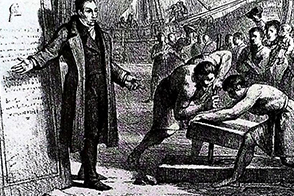
Presenter: Alan Hoffman
In 1824-1825 the Marquis de Lafayette visisted all 24 states as the last surviving major general of the Continental Army. This Farewell Tour was described by contemporaries as a unique and extraordinary event. Edward Everett of Massachusetts called the Tour “an event taken in all its part, unparalleled in the history of man.” In this program, Alan Hoffman, translator of Lafayette in America in 1824 and 1825, a first-hand account of Lafayette’s Farewell Tour, will examine how Lafayette’s story-book life, role in the American Revolution, friendship with George Washington, support of American interests, and his Farewell Tour shaped his remarkable reputation. He will highlight Lafayette’s visits to cities and towns in New Hampshire to illustrate how the American people celebrated Lafayette and America during the Tour.

Presenter: Dan Billin
Rattlesnakes were so common in colonial-era New Hampshire that dozens of places were named for them, ranging from the Massachusetts border to the White Mountains. They were so abundant some settlers could pay their property taxes with the bounties offered for killing them. Today, however, Crotalus horridus, the timber rattlesnake, is the state’s rarest native animal—only a handful are known to survive. State law protects them now, but that may not be enough to save them. Wildlife biologists have predicted this tiny remnant will die out without extraordinary intervention.
How did this feared and fascinating animal come to the very brink of extirpation in our state? This illustrated presentation maps how we got here through the social, political, and natural history of New Hampshire’s rattlesnakes. Historian and former newspaper reporter Dan Billin presents vivid, little-known stories and images from our centuries-long war on our rattlesnakes. Topics include who’s been bitten; the medicinal use of rattlesnake oil by the Shakers and others; the exploits of the “Rattlesnake King of New Hampshire”; the twentieth-century rattlesnake panic in the legislature; and the mysterious recent appearance of rattlesnakes with Pennsylvania genes. This program reviews what is and isn’t being done today to conserve our rattlesnakes, and the many obstacles to their survival.
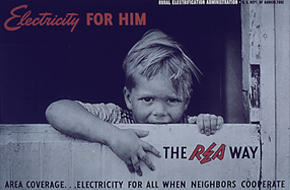
Presenter: Stephen Taylor
Imagine a New Hampshire town where some people enjoyed the benefits of electricity – lighting at the flick of a switch and reliable heating controlled by a thermostat – while others lived with smelly kerosene lamps and smoky box stoves. In New Hampshire, during the first half of the 20th century, residents of developed communities enjoyed the transformative benefits of electric power while those in the sparsely populated regions lived and worked in conditions little changed from the 19th century.
It took the coming of the New Deal's Rural Electrification Administration and a determined band of farmers to overcome opposition from the established private utilities to create the New Hampshire Electric Cooperative in 1939. Despite labor and material shortages during World War II, within a decade, power came to almost all of the previously unserved areas of the state. For thousands of households, this meant relief from the drudgery of the wood-fueled cookstove, the washboard and the kerosene lamp. Reliable electric power similarly brought new ways of life to farmers and artisans. This program will explore how these developments changed civic and social life in New Hampshire’s countryside, and touch the ways the disparity of broadband access in the state today echoes these earlier struggles.
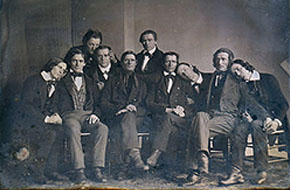
Presenter: Steve Blunt
The year is 1876, and New Hampshire's own John Hutchinson sings and tells about his famous musical family "straight from the horse's mouth." Originally from Milford, NH, the Hutchinson Family Singers were among America's most notable musical entertainers for much of the mid-19th century. They achieved international recognition with songs advancing social reform and political causes such as abolition, temperance, women's suffrage, and the Lincoln presidential campaign of 1860. In this living history program, Steve Blunt portrays John Hutchinson. He tells the Hutchinsons' story and shares their music with lyrics provided. Audience members are invited to sing along on "The Old Granite State," "Get Off the Track," "Tenting on the Old Campground," and more.

Presenter: Megan Hurley
Explore the history of telecommunications with The New Hampshire Telephone Museum! This program is adaptable for both youth and adult audiences:
Youth programs: The New Hampshire Telephone Museum Storytime! There are three stories to choose from - the telephone, sound waves, or the telegraph. Read a story with our educator, make a Bee Buzzer, thumbprint birds, or a morse code bracelet, play a game, explore vintage phones, telegraphs, and other hands-on activities.
Adult program: The New Hampshire Telephone Museum houses a tangible history of telecommunications with over 1,000 artifacts. This presentation will highlight important moments in telephone history, such as the race to the patent office, the switchboard and party lines, and the undertaker who invented the dial system. People will be able to watch a Powerpoint tour around the museum and handle vintage phones from different time periods including a candlestick, rotary, and liquid telephone to name a few.

Presenter: Dan Billin
In 1969, when New Hampshire officials decided to put the state’s motto – “live free or die” – on its license plates, many citizens viewed the act as an endorsement of the deeply unpopular war being waged in Vietnam and protested by covering up or altering the motto. In response, authorities cracked down hard: arresting, fining, and sometimes even incarcerating those who engaged in duct-tape dissent. People appealed their convictions, sparking a legal contest over the First Amendment that went all the way to the U.S. Supreme Court. In this multimedia presentation, historian and former newspaper reporter Dan Billin tells a uniquely New Hampshire tale illustrating the genius – and the fragility – of the First Amendment.
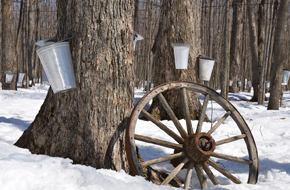
Presenter: Damian Costello
Few things evoke the identity and values of New Hamphire more than maple syrup. It also bridges the many divisions facing our communites. In this presentation, Damian Costello explores how the practice of maple sugaring connects us to the land, our ancestors, and all that surrounds us. In conversation with Robin Wall Kimmerer’s bestselling Braiding Sweetgrass, he suggests that sugarmaking—which is informed by indigenous wisdom—is a communal medicine of connection that teaches mutual reciprocity with the land.
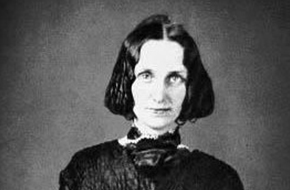
Presenter: Nicole Ruane
Mary Baker Eddy was New Hampshire's most important and most innovative religious thinker. Mark Twain called Eddy "the most interesting woman that ever lived, and the most extraordinary." The church she founded, The Church of Christ, Scientist, profoundly affected both American ideologies of religion as well as public opinion of the role of women in society. This program discusses the ways in which Eddy's experience as a woman in Victorian-era America influenced her gendered understanding of God as well as the nature of humanity, the body, health, and the place of women in powerful organizations. In Eddy's theology, the divine was not punishing but welcoming and caring; not a domineering father but a loving father-mother – a perspective that uplifted the feminine in both the divine realm and the human world. Although Eddy's perspectives on healing have always been controversial, her rejection of medicine stemmed from encounters with nineteenth-century physicians that she felt were demeaning and violating. Eddy instead advocated a patient-centered method of self-empowered healing, a perspective that has much in common with later views of positive psychology and the power of the mind over the body.
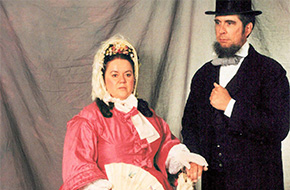
Presenter: Sally Mummey
Raised in a slaveholding family, Mary Todd Lincoln evolved into an advocate for abolition. The intellectual equal of well-educated men, she spoke her mind openly in an era when a woman's success in life was measured by marriage and motherhood. Against her family's wishes, she married the man she loved and partnered with him to achieve their goal of becoming President and First Lady. Sparkling with humor and insight, Sally Mummey as Mary Lincoln shares stories of their life and love, triumphs and challenges, and life in the White House during the tumultuous years of the Civil War.
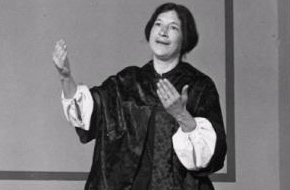
Presenter: Judith Black
In this first-person interpretive program, Judith Black introduces American Lucy Stone, the first woman hired by the Massachusetts Anti-Slavery Society as a public speaker and the "Shining Star" of the Abolition and Women's Rights Movements. The presenter dispels well-worn platitudes about the antebellum North by interjecting historic and personal truths about these social reform movements. Her presentation also paints a dynamic and detailed picture of what it takes to change the world you are born into. Follow Lucy as she makes her case for tax resistance, her challenges to marriage laws and motherhood, and her pro-Emancipation response to the Civil War. Go with her to The American Equal Rights Association Convention in May 1869, where she eloquently supports the 15th Amendment, which gave African-American men the vote.
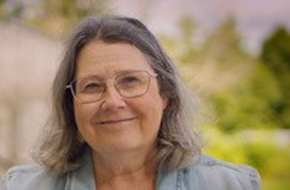
Presenter: Rebecca Rule
Drawing on research from her book, Moved and Seconded: Town Meeting in New Hampshire, the Present, the Past, and the Future, Rebecca Rule regales audiences with stories of the rituals, traditions, and history of town meeting, including the perennial characters, the literature, the humor, and the wisdom of this uniquely New England institution.
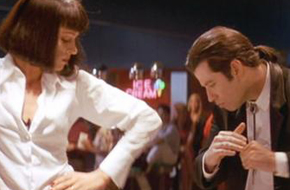
Presenter: Patrick Anderson
Patrick Anderson focuses on contemporary film directors and screenwriters in the United States whose originality, independence and unconventional approaches to the medium have contributed to the evolution of the industry. The program enables a greater understanding of and appreciation for both the content and form of movies made outside the mainstream Hollywood system, and considers some of the key differences in theme, style and narrative format between these works and the more conventional fare of so-called "classic cinema." Among the filmmakers to be examined are Steven Soderbergh, David Lynch, John Sayles, Spike Lee, Quentin Tarantino, the Coen brothers, Wes Anderson, Sofia Coppola, P.T. Anderson, Jim Jarmusch and Charlie Kaufman. Patrick Anderson urges participants to view and analyze a variety of film clips carefully so that, by the end of the session, they will be more visually articulate and critically aware of how one "reads" a film.
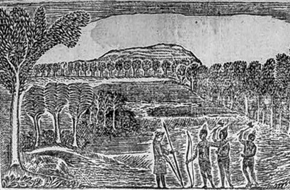
Presenter: Damian Costello
Calling all genealogists, local historians, and amateur detectives! This program will examine an unsolved story of murder from northern New England: Local history briefly records that in 1790, the original American settler to the Montpelier area, Jacob Fowler, killed an unnamed “Indian” in a dispute over a trapline. Together, participants will draw on historical documents, genealogical work, and the fiction of local historian D.P. Thompson to reconstruct the biographies of the two participants and explore this formative time in New England history.
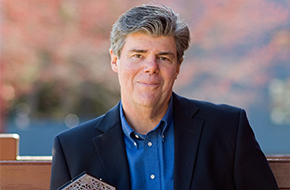
Presenter: Jeff Warner
Singing games, accessible "pocket instruments" like spoons and dancing puppets, tall tales, funny songs, old songs and songs kids teach each other in the playground-all "traditional" in that they have been passed down the generations by word of mouth-will be seen, heard and learned. We will revisit 1850 or 1910 in a New England town, with families gathered around the kitchen hearth, participating in timeless, hearty entertainment: a glimpse into how America amused itself before electricity. This program is recommended for adults and children ages 6 and above.
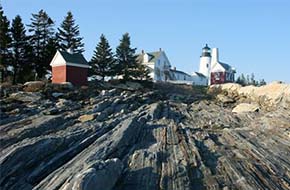
Presenter: Jeremy D'Entremont
Everyone knows that there's "something about lighthouses" that gives them broad appeal, but their vital role in our history and culture is little appreciated. Our early nation was built on maritime economy, and lighthouses were part of the system that made that possible. Due to automation, traditional lighthouse keeping is a way of life that has faded into the past. Jeremy D'Entremont tells the history of New England's historic and picturesque lighthouses primarily focusing on the colorful and dramatic stories of lighthouse keepers and their families.
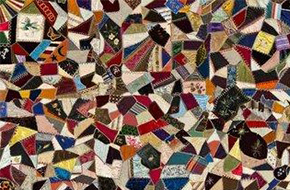
Presenter: Pamela Weeks
Quilts tell stories, and quilt history is full of myths and misinformation as well as heart-warming tales of service and tradition. Nearly every world culture that has cold weather uses quilted textiles – quilting is NOT just an American art. Pam Weeks weaves world history, women's history, industrial history and just plain wonderful stories into her presentation. Participants are invited to bring one quilt for identification and/or story sharing. Prompted in part by the material culture at hand, the presenter may speak about fashion fads, the Colonial Revival, quilt making for Civil War soldiers, and anything else quilt-related she can squeeze in.
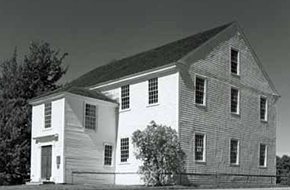
Presenter: Paul Wainwright
New England's colonial meetinghouses embody an important yet little-known chapter in American history. Built mostly with tax money, they served as both places of worship and places for town meetings, and were the centers of life in colonial New England communities. Using photographs of the few surviving "mint condition" meetinghouses as illustrations, Paul Wainwright tells the story of the society that built and used them, and the lasting impact they have had on American culture.
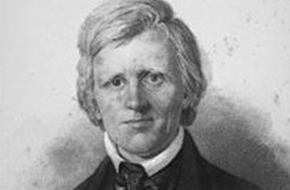
Presenter: Rebecca Noel
Successful attorney--and father of eight--Nathaniel Peabody Rogers walked away from his Plymouth, NH, law practice in the 1830s for a dangerous and nearly unpaid gig editing a Concord-based anti-slavery newspaper, the Herald of Freedom. Plymouth State University historian Rebecca R. Noel tells the story of this feisty Granite State native, one of the so-called New Hampshire radicals. Rogers' dedication to abolition and racial inclusion took several forms in his relatively short life. He sheltered fugitives in Plymouth and Concord, co-founded the integrated Noyes Academy in Canaan, networked with major abolitionists including Frederick Douglass and William Lloyd Garrison, and above all wrote passionate, searing essays against slavery and racism. Henry David Thoreau admired Rogers' political zeal and his beautiful nature writing about the White Mountains, published under the pseudonym "The Old Man of the Mountain," and abolitionist poet John Pierpont called Rogers the best newspaper writer in the United States. Rogers' story shines a light on this lively reform era, and his contributions to the crusade for social justice still resonate today.
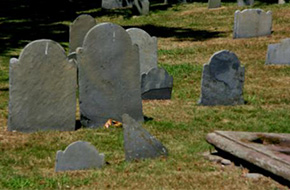
Presenter: Glenn Knoblock
A rich variety of cemeteries and gravestones can be found in town cemeteries all across our state and the forgotten aspects of our history that is therein revealed. They not only tell stories of such historical events as the Great Awakening, the Throat Distemper epidemic, the American Revolution, and the battles of the Civil War, but also reveal how aspects of society in the Granite State. Join Glenn to find out more about these deeply personal works of art and learn how to read the stone "pages" that give insight into the vast genealogical book of New Hampshire through the ages.
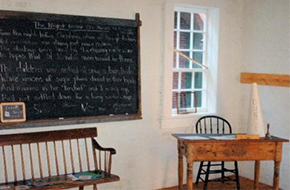
Presenter: Stephen Taylor
Hundreds of one-room schools dotted the landscape of New Hampshire a century ago and were the backbone of primary education for generations of children. Revered in literature and lore, they actually were beset with problems, some of which are little changed today. The greatest issue was financing the local school and the vast differences between taxing districts in ability to support education. Other concerns included teacher preparation and quality, curriculum, discipline, student achievement and community involvement in the educational process. Steve Taylor explores the lasting legacies of the one-room school and how they echo today.
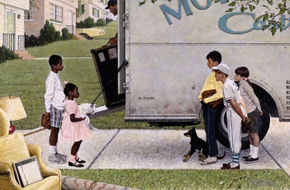
Presenter: Jane Oneail
Norman Rockwell is heralded for depicting and defining middle-class American life in the 20th century. In addition to painting funny and uplifting scenes, he often captured bittersweet images of people experiencing universal and relatable feelings of being left out or left behind. As an artist with this particular skill set, why are his works devoid of America’s rich cultural and racial diversity? Toward the end of his career, however, Rockwell painted several poignant works about race in America that can be seen as an extension of his earlier sense of the power of inclusion and exclusion. This enlightening program tracks Rockwell's commitment to painting a more diverse America.
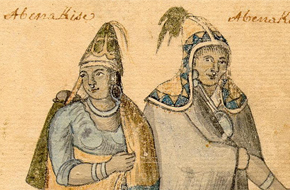
Presenter: Anne Jennison
The "People of the Dawnland" (Abenaki/Wabanaki) of New Hampshire and the Northeast are the first Indigenous peoples in North America to have had contact with Europeans. In this presentation, Anne examines how European colonization of North America impacted generations of Abenaki/Wabanaki people. She also highlights the ways that the Abenaki/Wabanaki peoples have acted as agents of their own change through education, self-advocacy, efforts to revitalize their languages and traditional arts. Finally, she discusses how—working with archeologists, anthropologists, and scientists—they have recovered and revealed more about their history and traditional knowledge.
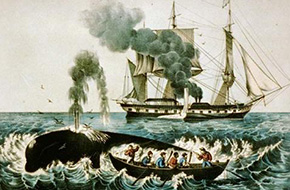
Presenter: Helen Frink
In January 2016, the U.S. National Oceanic and Atmospheric Association announced the discovery of the wreckage of two sunken whale ships off the Alaskan coast. Oil, Ice, and Bone tells the story of these vessels and how they came to be lost in the greatest whaling disaster in American history. Arctic whaler Nathaniel Ransom served as third mate of one of the ships abandoned in 1871. In 1860, as a fourteen-year-old, he followed his five older brothers into the dank forecastle of a whaling vessel. For fifteen years he hunted seventy-ton bowheads in Arctic waters for the many uses of "bone." Blades of flexible baleen from the leviathan's enormous jaw raised its value, even as petroleum gradually replaced whale oil as a source of lighting. In 1871 Ransom survived the loss of thirty-two whaling vessels in the frigid waters off Alaska's Icy Cape. He kept a journal - and held onto it as he and his shipmates jettisoned weapons and warm clothing to save their very lives. His eyewitness account of whaling's brutal slaughter and sudden losses is enriched by presenter Helen Frink's affection for an ancestor she discovered through his journals a century after his death.
Presenter: Joshua Tepley
Open Questions is a series of thought-provoking community conversations presented by New Hampshire Humanities. This series explores essential questions about meaning and life that are important to Granite Staters. Each program is facilitated by philosophy professors who will explore essential questions about meaning and life.
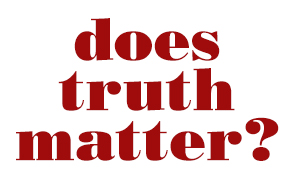
Presenter: Joshua Tepley
Open Questions is a series of thought-provoking community conversations presented by New Hampshire Humanities. This series explores essential questions about meaning and life that are important to Granite Staters. Each program is facilitated by philosophy professors who will explore essential questions about meaning and life.
Presenter: Max Latona & Timm A. Triplett
Open Questions is a series of thought-provoking community conversations presented by New Hampshire Humanities. This series explores essential questions about meaning and life that are important to Granite Staters. Each program is facilitated by philosophy professors who will explore essential questions about meaning and life.
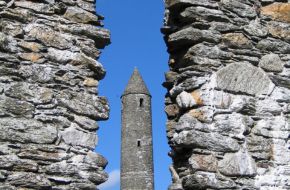
Presenter: Mary C. Kelly
Marking the 250th anniversary of the Declaration of Independence allows us to reflect on the imprint of historical actors and events in our lives today. Why do we look to the past to inform our sense of ourselves, our communities, and our identities? How does commemoration of historical events exert meaning in our lives? Explore themes of faith, freedom, and revolutionary change through St Patrick's life and legacy. Travel historical pathways from Ancient Ireland to today's exuberant annual holiday--when "everyone is Irish" for a day. Experience 5th century Latin, Roman and Irish images and texts that reveal Early Christian Irish worlds of slavery and mysticism, Patrick's transformational revolution in faith, his journey to sainthood and then to national symbol, and the colorful legacy he is associated with today. If you have Irish roots, or just enjoy the festivities on March 17th, this presentation will transport you from Ancient Irish foundations to modern American remembrance forms, and illuminate why St. Patrick's name has endured for more than a millennium and a half.

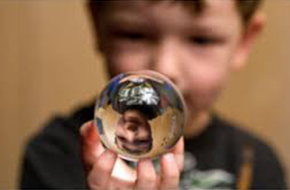
Presenter: Timm A. Triplett
If you appreciate beauty, if you are still full of wonder, if you ponder the meaning of life, you will love this program. Timm Triplett's hands-on philosophy inspires you to free your curiosity, re-affirm your sense of wonder, and convey your love of wisdom to children, who are themselves delightfully receptive to the excitement of philosophical questions.
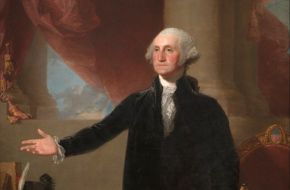
Presenter: Inez McDermott
This program explores American portraits painted and sculpted during the years leading up to, and the decades after, the Revolution. The ideals, values and virtues expressly stated in our founding documents are easily identifiable in these portraits once we know how to “read” them. We will examine portraits of founding “fathers” and “mothers,” as well as of lesser-known individuals, as documents that can be read like texts. We will also discuss the tradition of portraiture, and the influences of earlier art movements, artists, and artifacts, that inform these American portraits. Audiences will be introduced to, and practice, some skills of art analysis and learn how art works can reveal so much about a culture.


Presenter: Alexandria Peary
Writing can become much more fulfilling if we think of it as happening right Now. Much is lost when we overlook the present moment because we forfeit rewarding writing experiences in exchange for stress, frustration, boredom, fear, and shortchanged invention and creativity (it's a poor bargain). Through mindfulness, we can reduce our writing apprehension and the writing blocks that come from future- or past-oriented thinking. Every moment can become a prolific moment: we can write more quickly and with greater ease of mind. In this presentation, we discuss writing tools that emerge when present time is highlighted: impermanence, audience demons, monkey mind self-talk, and preconceptions about writing ability and writing task. Participants will learn basic strategies to incorporate mindfulness into their writing lives.
"Alex’s program was inspiring and freeing, as it released me from the worry about writing to be perfect. Her use of breathing, relaxing writing prompts, and positivity skillfully helped us achieve some writing experience without panic. Thank you for the opportunity to work with such a talented writer and educator."
- Sandown Public Library
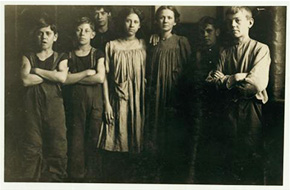
Presenter: Robert B. Perreault
Daily life for the Amoskeag Manufacturing Company's textile worker was not easy. Robert Perreault sheds light on how people from a variety of European countries as well as from French Canada made the transition from an agrarian to an industrial society and how that change affected families, cultures, the nature of work, and relationships among workers themselves.

Presenter: Marek Bennett
Marek Bennett presents an overview of the American Civil War through the lens of period music. Audience members participate and sing along as the presenters explore lyrics, documents, and visual images from sources such as the Library of Congress. Through camp songs, parlor music, hymns, battlefield rallying cries, and fiddle tunes, Bennett examines the folksong as a means to enact living history, share perspectives, influence public perceptions of events, and simultaneously fuse and conserve cultures in times of change. Showcasing numerous instruments, the presenters challenge participants to find new connections between song, art, and politics in American history.
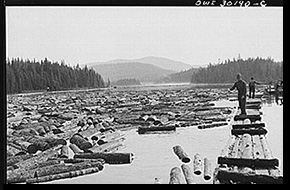
Presenter: Jeff Warner
Loggers at the turn of the twentieth century cut the timber that built and warmed our houses and provided the ties for America's ever-expanding railroads. Timber established Portsmouth, Portland and Bangor as important ports, sending New England lumber around the world. Folklorist Jeff Warner relates the songs and stories of the people who worked the wintry woods, showing their humor and their grit, and giving us a glimpse into everyday life in long ago lumber camps.

Presenter: Mary Adams
New Hampshire often gets overlooked in the narrative of the American Revolution, overshadowed by its noisy neighbor to the south. Nowadays, few people know about Paul Revere’s first ride, which was to Portsmouth in December 1774 to warn the patriots that the British were coming to reinforce Fort William and Mary, five months before the Redcoats marched on Concord and Lexington. Nor do they know that two-thirds of the troops at the Battle of Bunker Hill were from New Hampshire. Most people are also unaware that New Hampshire’s Provincial Congress adopted the first state constitution in January 1776, making no mention of royal authority and essentially declaring independence from Great Britain six months before anyone else. And this is just the beginning of New Hampshire’s revolutionary story.

"Mary was well prepared and is a wonderful educator and speaker. She knows her subject well and her enthusiasm was evident. The slides and stories she chose were perfect for the subject and we could tell she knows a lot more than she could cram into the presentation. Mary is a valuable resource for learning NH history."
-Host organization, Windham, NH

Presenter: Abby Goode
In the famous words of Wallace Stegner, “national parks are the best idea we ever had. Absolutely American, absolutely democratic, they reflect us at our best rather than our worst." But are National Parks truly “democratic”? Who has access to National Parks and what kinds of fantasies do they serve? This interactive program explores the history of U.S. National Parks—as myths, symbols of democratic ideals, and colonial spaces—alongside today’s common National Park activities. Why are visitation rates on the rise? What are we seeking at the National Parks? What do our National Park consumption habits tell us about ourselves? We will look at the rising phenomenon of “selfie deaths,” as well as the broader role of social media in National Park consumption. National Parks may represent freedom for some, but no matter how carefully tended and regulated, they also form part of a planet in crisis. How does climate change fundamentally threaten National Parks, challenging their status as highly valued, protectable spaces? How might we revise the preservation tradition that gave birth to the National Parks to include our own neighborhoods and communities? We will consider these questions in the national context, but also in light of our own state—home to the White Mountain National Forest, which attracts so many eager visitors every year.
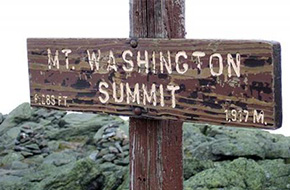
Presenter: John Harris
In 1947, Edwin Way Teale, the most popular naturalist in the decade between Aldo Leopold and Rachel Carson, followed the progress of spring over four months from the Everglades to the summit of Mount Washington. His best-selling book, North with the Spring, recounts the epic journey he and his wife Nellie undertook. In 2012, John Harris set out to retrace Teale's route, stopping at unfamiliar wild places on the same calendar date on which Teale visited. Using Teale's journal notes and photographs, Harris examined and compared changes in the flora, fauna, and lives of the people along the way. His account documents the losses, details the transformations, and celebrates the victories, for a remarkable number of east coast refuges have grown wilder during the intervening years.
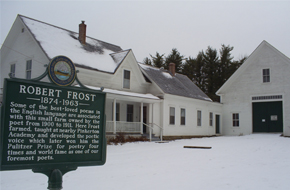
Presenter: Jeffrey Zygmont
While it makes spoken words sing like sauntering music, Robert Frost’s poetry can also help us appreciate the rigor of life on a New England farm in the early 20th century (hint: It was hard.) In an exploration of both New Hampshire history and Frost’s poetry, author and poet Jeffrey Zygmont recites a selection of Frost’s poems about farming. Alongside each recitation, he provides background on Frost’s life, offering insight into the poem’s origins, and commentary on the work’s artistic beauty, as well as the experiences and emotions it expresses. Participants will join a lively discussion celebrating Robert Frost’s unique gift for capturing farm life in poetry.
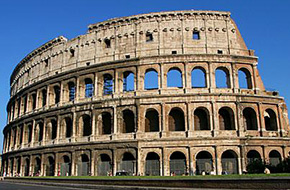
Presenter: R. Scott Smith
Rome and Pompeii were part of the "Grand Tour" for upper-class elite from the 17th through the 19th centuries, and remain today the primary sites through which we reach back into the Roman empire's past. R. Scott Smith explores the archaeological remains of Rome, the "Eternal City," and Pompeii, the town that was buried by the eruption of Vesuvius in 79 AD, and discusses the problems of preserving these ancient ruins. The latter issue is especially important as the great monuments that symbolize the past have recently been threatened (the Colisseum by frigid temperatures in 2011-12) or completely destroyed (The House of the Gladiator by torrential rains in 2010)
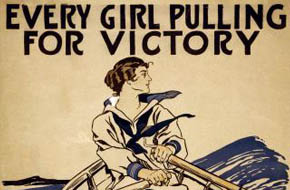
Presenter: Carrie Brown
One hundred years ago, a full generation before Rosie the Riveter, American women rolled up their sleeves and entered war industries where they had never been welcome before. They ran powerful machinery, learned new skills, and faced the sullen hostility of the men in the shops. In this illustrated lecture, historian Carrie Brown reveals their courage and their hard work, asks what impact "the Great War" had on their lives, and explores how these women helped shape the work that their more famous daughters would do in the next World War.
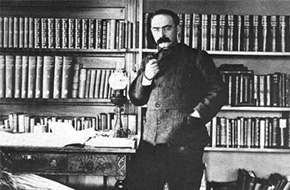
Presenter: Jackson Gillman
Rudyard Kipling was the most internationally-celebrated author of his day. The first four years of his marriage and fatherhood were spent in New England where he built his dream house - Naulakha in Dummerston, Vermont - now preserved as a Landmark Trust property. It was there that he penned The Jungle Book and other classics. These were productive and happy years for the young literary giant, but eventually deeply troubled. Although Kipling was an intensely private individual, Jackson Gillman's sensitive portrayal provides an inside look at the writer's experience in New England and some of the controversy surrounding this complex man. Part lecture, part living history, part storytelling, Jackson's presentation includes a selection of the classic Just So Stories.
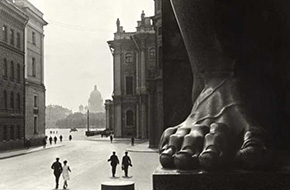
Presenter: Marina Forbes
For the past 22 years, local Russian artist and lecturer Marina Forbes has presented her customized cultural tours designed for anyone interested in developing a first-hand understanding of Russian life and culture. Marina's illustrated and interactive presentations demonstrate her unique vision of how to experience the rich tapestry of her native Russia. Marina establishes a link between Russia's rich cultural heritage and the lives of Russians today. The fall of Soviet Communism in the early 1990s catapulted Russia into a new social order. The emergence of the "new rich," the evolving role of women, the revival of the Orthodox Church, the changing effects of Russian humor, family life, entertainment, and the new emphasis on consumerism are all revealed as she brings personal experience and research to bear in this fascinating look at contemporary Russian life. Topics also include the life of Russian retirees, public and private health services, civil and criminal legal procedures, real estate, the education system, and workplace issues.
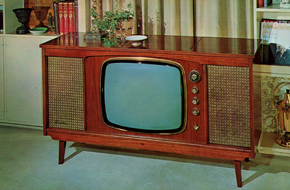
Presenter: Margo Burns
Many kids in the second half of the 20th century shared a common Saturday morning ritual: watching Yogi Bear, Bugs Bunny, and Rocky & Bullwinkle while eating a bowl of Captain Crunch. This practice, however, was a relatively recent development, brought about by the advent of television. Before the 1960s, cartoons were shown in theaters before feature films for adults. As more American families acquired TVs, animation studios retooled their storehouses to respond to the demand for new shows and Madison Avenue advertising executives shifted their focus to a lucrative new demographic: children. Soon after-school and Saturday-morning time slots were flooded with cartoons – and advertisements for sugary cereals and plastic toys. In this program, we will watch some clips from classic cartoons that will be sure to spark some nostalgia while taking a peek behind the TV screen, to learn how the classic Saturday morning was created.
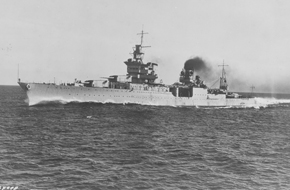
Presenter: Michael Tougias
On July 30, 1945, the USS Indianapolis was torpedoed in the South Pacific by a Japanese submarine. An estimated 300 men were killed upon impact and close to 900 sailors were cast into the sea, fighting off sharks, hypothermia and hallucinations. When they were finally discovered, after four days and nights, only 317 men were alive. In this presentation, Michael Tougias will answer the questions: Why did the Navy fail to realize the ship was missing? Why was it unescorted in enemy waters? How did the 317 men survive against all odds? Why was the captain court-martialed? Was the captain a scapegoat for the Navy's own mistakes? This is a riveting story of survival during WWII that also shows the terrible cost of war.
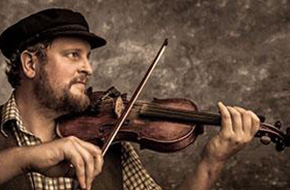
Presenter: Jordan Tirrell-Wysocki
Through traditional music Jordan Tirrell-Wysocki relays some of the adventures, misadventures, and emotions experienced by Irish emigrants. The focus is on songs about leaving Ireland, sometimes focusing on the reasons for leaving (a man who is driven from his land by English persecution), sometimes revealing what happened upon arrival (an immigrant drafted into the Union army during the Civil War), and sometimes exploring the universal feeling of homesickness of a stranger in a strange land (a factory worker in London missing his home in County Clare). The presenter discusses the historical context of these songs, interspersing their stories with tunes from Ireland that made their way into New England's musical repertoire, played on his fiddle or guitar.
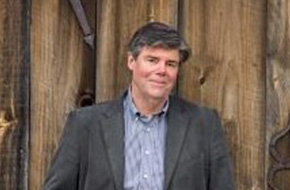
Presenter: Jeff Warner
Drawing heavily on the repertoire of traditional singer Lena Bourne Fish (1873-1945) of Jaffrey and Temple, NH, Jeff Warner offers the songs and stories that, in the words of Carl Sandburg, tell us "where we came from and what brought us along." These ballads, love songs and comic pieces, reveal the experiences and emotions of daily life in the days before movies, sound recordings and, for some, books. Songs from the lumber camps, the decks of sailing ships, the textile mills, and the war between the sexes offer views of pre-industrial New England and a chance to hear living artifacts from the 18th and 19th centuries.
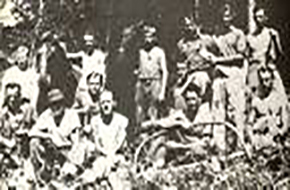
Presenter: Allen Koop
During World War II, 300 German prisoners of war were held at Camp Stark near the village of Stark in New Hampshire's North Country. Allen Koop reveals the history of this camp, which tells us much about our country's war experience and about our state.
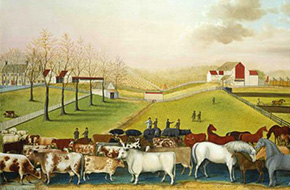
Presenter: Abby Goode
What is sustainability? And how has American literature shaped our understanding of this concept, in ways both surprising and disturbing? This interactive program begins with a discussion of current ideas about sustainability. Then, we will go back in time to examine Thomas Jefferson's vision of American agricultural abundance, which he contrasted with an overpopulated and under-resourced Europe. Throughout the 19th and early 20th centuries, writers such as Walt Whitman and Charlotte Perkins Gilman drew on Jefferson's agrarian vision to respond to sustainability crises of their time. But in so doing, they depicted selective breeding and racial "improvement" as the solution to population crises and the path to agricultural plenty. We will explore this particularly eugenic conception of sustainability and discuss what new or different versions of sustainability might prove more useful in our current moment.
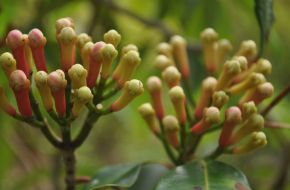
Presenter: Laura Tilghman
The spice trade conjures up images of traveling tent caravans or heavy-laden ships from the Age of Exploration. But what you may not know is that many of the flavoring ingredients we use in baking and cooking today are grown and traded in ways that echo those ancient roots before ending up in our spice rack. In this presentation we will explore two spices: cloves (the aromatic flower buds of Syzygium aromaticum Myrtle trees) and vanilla (the cured pods of the Vanilla planifolia orchid). Madagascar grows and exports a major proportion of the global supply of both spices. The stories of vanilla and cloves show continuity with the past, as both are grown by small scale farmers using techniques and tools similar to when these spices were first introduced to the island by the French in the late 1800s. Yet these spices can also help us understand the tensions in our increasingly connected and complex world, as those farmers must now weather pressures as varied as commodity market fluctuations, climate change, and artificial flavor competition. Whether you’re an avid baker, have a sweet tooth, or are just curious about the world around you, this presentation will help you appreciate the people and places behind the global products we buy and consume every day.
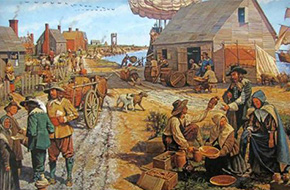
Presenter: Jo Radner
The stories we hear from our families tell us who we are and how we should view the world. What tales shaped New England identities in the 17th and 18th centuries? In this performance, storyteller/historian Jo Radner juxtaposes Native American oral traditions and stories told by her own New England ancestors to reveal a complex colonial "middle ground" in which English settlers and Native peoples saw one another as defenders and trespassers, pursuers and refugees, relatives and aliens, kind neighbors and ruthless destroyers.
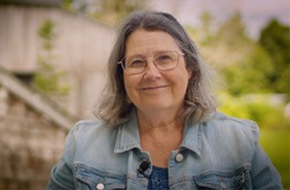
Presenter: Rebecca Rule
Stories speak to us of community. They hold our history and reflect our identity. Rebecca Rule has made it her mission over the last 20 years to collect stories of New Hampshire, especially those that reflect what's special about this rocky old place. She'll tell some of those stories – her favorites are the funny ones – and invite audience members to contribute a few stories of their own.
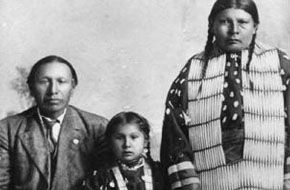
Presenter: Damian Costello
This lecture explores the life and legacy of Nicholas Black Elk (c.1866-1950), the Lakota holy man made famous by the book Black Elk Speaks, beginning with Black Elk's Great Vision and his struggle to discern his calling during the events of the Great Sioux War. During his long life, Black Elk lived out his vision in three overlapping roles: as a traditional healer, a Catholic teacher, and a revivalist of Indigenous traditions. In the midst of great tragedy, Black Elk wove these three strands into one beautiful life exemplifying survival, hope, and reconciliation. We will discuss the relevance of Black Elk's legacy for broader questions of Abenaki survival in Northern New England, hope in the face of global environmental problems, and reconciliation in the midst of growing political and religious sectarianism. This talk is based on extensive historical research, extended residency in Indian Country, and continuing conversation with Lakota elders.
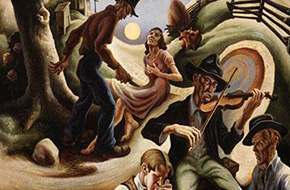
Presenter: John Perrault
Murder and mayhem, robbery and rapine, love that cuts to the bone: American ballads re-tell the wrenching themes of their English and Scottish cousins. Transplanted in the new world by old world immigrants, the traditional story-song of the Anglos and Scots wound up reinvigorated in the mountains of Appalachia and along the Canadian border. John Perrault talks, sings, and picks the strings that bind the old ballads to the new.

Presenter: Erin Moulton
Your local cemetery is a time capsule. Each headstone is plastered with clues about the deceased, those who once walked where you walk now. A simple step through the hallowed gates can bring you on an adventure to explore symbolism, workmanship, and local history. Join Erin E. Moulton as we learn the meaning behind cemetery iconography, abbreviations, epitaphs, and more.
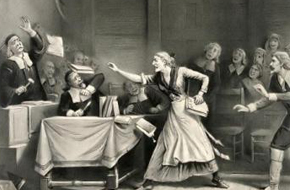
Presenter: Margo Burns
On first impression, the witchcraft trials of the Colonial era may seem to have been nothing but a free-for-all, fraught with hysterics. Margo Burns explores an array of prosecutions in seventeenth century New England, using facsimiles of primary source manuscripts, from first formal complaints to arrest warrants, indictments of formal charges to death warrants, and the reversals of attainder and rescinding of excommunications years after the fact; demonstrating how methodically and logically the Salem Court worked. This program focuses on the Salem witchcraft trials of 1692 and 1693, when nineteen people were hanged and one crushed to death, but also examines a variety of other cases against women in New Hampshire, Massachusetts, and Connecticut.
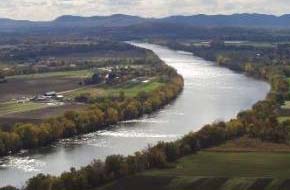
Presenter: Adair Mulligan
The largest river in New England rises in a small beaver pond near the Canadian border and flows over 400 miles through four states, falling 2,670 feet to the sea through America's only watershed-based national fish and wildlife refuge. Adair Mulligan leads an armchair tour of this great river in New Hampshire and Vermont, exploring its history and natural beauty through the seasons and among the communities that have sprung up along its banks. Next, the discussion will shift to how the river has influenced the lives of those who live there, and how they, in turn, have affected the river. Much more than a travelogue, this presentation explores the many issues involved in managing the health of this major river, and how citizens from all walks of life have created a vision for its future.
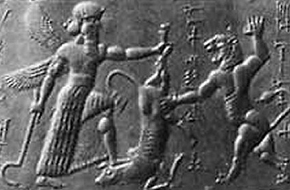
Presenter: Sebastian Lockwood
This is our earliest epic. It is at least four thousand years old, but in performance we discover a dynamic and thrilling tale of heroes, friendship, battles with a monster, and death, followed by a journey to the other world to meet Utnapishtin, whom we know as Noah. Gilgamesh will ask him about life and death and he will come home with a great story. In the Q&A after the performance, Sebastian Lockwood can tell the tale of how the tablets were found in Iraq and how scholars broke the code to reveal the story and its Biblical parallels.
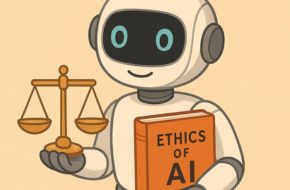
Presenter: Kiki Berk
This program explores some of the most urgent moral challenges that Artificial Intelligence presents to society today. Topics include automation and job displacement, deepfakes and misinformation, the role of AI in education, implicit bias, autonomous systems (such as self-driving cars and drones), and the ethical implications of a potential technological singularity. After a brief introduction to applied ethics and the technology behind generative AI, we will examine each issue in turn, highlighting the core moral questions they raise and their significance for shaping sound policies and regulations. The session will conclude with an open discussion, giving attendees a chance to share perspectives and ask questions. Participants will come away with a clearer understanding of the ethical landscape of AI and the tools to think critically about its future impact.
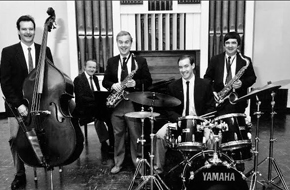
Presenter: Charles Jennison
In this multi-media presentation, jazz educator and performer Charlie Jennison presents some of the influential players, venues and organizations that contributed to the rich and diverse jazz scene in the Seacoast area. Through photographs, recordings, and personal narratives, Charlie, an early member of the Seacoast Jazz Society, paints a colorful picture of the growth and development of this significant American art form in New Hampshire from the 1950s to the present day. This presentation, originally developed for the 2021 Seacoast Jazz Society lecture series, is designed for remote applications.
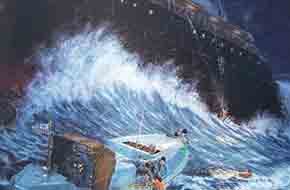
Presenter: Michael Tougias
On February 18, 1952, an astonishing maritime event began when a ferocious nor'easter split in half a 500-foot long oil tanker, the Pendleton, approximately one mile off the coast of Cape Cod, MA. Incredibly, just 20 miles away, a second oil tanker, the Fort Mercer, also split in half. On both tankers men were trapped on the severed bows and sterns, and all four sections were sinking in 60-foot seas. Thus began a life and death drama of survival, heroism, and a series of tragic mistakes. Of the 84 seamen aboard the tankers, 70 would be rescued and 14 would lose their lives. Michael Tougias, co-author of the book and Disney movie The Finest Hours, uses slides to illustrate the harrowing tale of the rescue efforts amidst towering waves and blinding snow in one of the most dangerous shoals in the world.
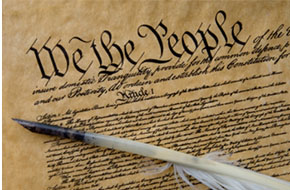
Presenter: Meg Mott
The First Amendment protects our most basic freedoms, none more important than freedom of speech. But what do we do about speech that threatens to destroy the social fabric? This presentation considers the constitutional arguments for and against hate speech codes and why the Supreme Court ruled against St. Paul's hate speech ordinance. If hate speech codes are unconstitutional, it falls on citizens to find other ways to counter hateful speech. We'll explore what capacities citizens need to preserve freedom and the social fabric. Could it be that persuasion and deliberation might be better strategies for all of us?
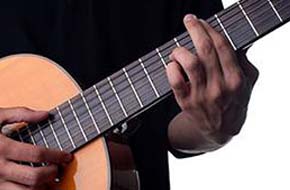
Presenter: Jose Lezcano
Jose Lezcano presents a multi-media musical program that showcases the guitar in Latin America as an instrument that speaks many languages. Lezcano presents a variety of musical styles: indigenous strummers in ritual festivals from Ecuador, Gaucho music from Argentina, European parlor waltzes from Venezuela, and Afro-Brazilian samba-pagode. He also plays pieces by Villa-Lobos, Brouwer, Lauro, Barrios, Pereira, and examples from his Fulbright-funded research in Ecuador.
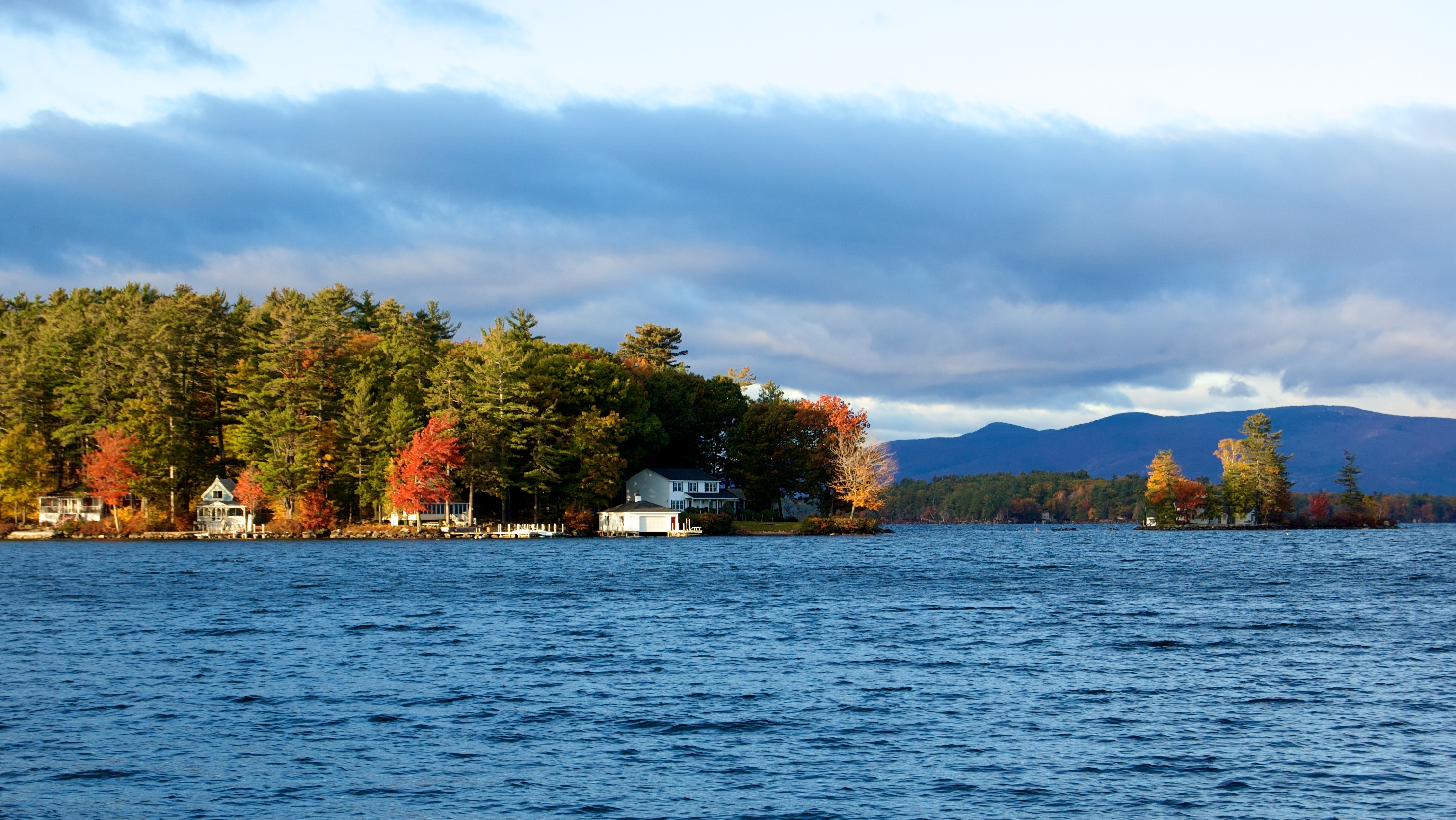
Presenter: Glenn Knoblock
Thought you knew all there was to know about the "Big Lake"? Think again! Lake Winnipesaukee's history goes well beyond the boating and other recreational-related activities we think of today. Join Glenn as he reveals the many facets of this history, including the real story about “America’s Oldest Summer Resort” in Wolfeboro, the religious sect on Gilford’s Governors Island who thought the world was ending, Massachusetts’ early efforts to claim New Hampshire territory as their own, the site of the country’s first college sports rivalry in Center Harbor, the African American community that once existed in Gilmanton, and the only airport of its kind in the entire country in Alton. Whether you live in the area, are a visitor from elsewhere in the Granite State, or are a summer resident or tourist, these fascinating and enlightening bits of history will change forever how you view New Hampshire’s "Big Lake."
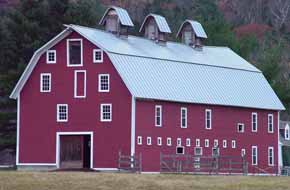
Presenter: John C. Porter
Barns can tell us a great deal about the history of agriculture in New Hampshire. In the colonial period, New Hampshire was a rural, agrarian state and small subsistence farms dotted the landscape. An important part of these farmsteads was the barn, which housed animals and stored crops. Early barns used traditional building methods and followed the English barn style, with a low pitched roof and doors under the eaves. As time went on, the farms expanded to accommodate changes in agriculture. This presentation will follow the progression of barn styles that evolved to handle the increased productivity required to meet the needs of a growing population and respond to changes in society caused by the railroad and the Industrial Revolution. John C. Porter, author of Preserving Old Barns: Preventing the Loss of a Valuable Resource, will demonstrate how these majestic barn structures represent Yankee ingenuity, hard work, and skilled craftsmanship, as well as providing a link to our past that adds to the state's scenic beauty.
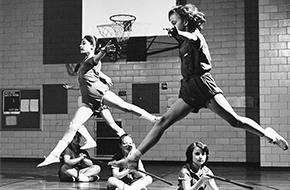
Presenter: Rebecca Noel
Rebecca Noel explores the sometimes alarming, sometimes hilarious backstory of what we now know as gym class. Physicians worried since the Renaissance that the sedentary, scholarly life makes people sick. They focused on varying concerns over time: digestive woes, melancholy, tuberculosis, spinal curvature, reproductive weakness. The problem widened along with access to education during the Enlightenment and into the 1800s. Tracing this idea from Europe to the U.S., from scholars to children, and from boys' to girls' education, the presentation shows how these fears inspired schools to get children moving. The program concludes with audience discussion of the relevance of this problem to our own times-like the Enlightenment, a moment in history when suddenly many more people live the sedentary lives once limited to a few scholars.
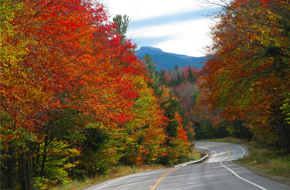
Presenter: Glenn Knoblock
Considered to be one of the most scenic roads in America, the Kancamagus Highway draws thousands of tourists to New Hampshire annually. The highway, which runs between Conway and Lincoln and through the towns of Albany and Waterville Valley, was fully opened in 1967, but the development of the highway itself took over 120 years to become a reality. Located in the Swift River Valley for much of its length, the Kancamagus is the gateway to the southern White Mountains and is not only renowned for its fall foliage views, but such celebrated natural sites as Sabbaday Falls, Lower Falls, and Rocky Gorge, to name just a few. Join historian and author Glenn Knoblock as he details the development of this Granite State treasure, and offers a glimpse into what the “Kanc” has to offer visitors all year round.
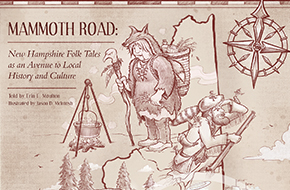
Presenter: Erin Moulton
Folk tales are passed from one generation to another, embellished by time and teller: “Ethan Crawford was as tall as Mount Washington. He could carry at least seven men on his back!” Yet, when we look at folk tales, the people who compiled them and the location from which they spring, we can access history in a new and entertaining way. Join us to hear and explore folk tales collected by the New Hampshire Women’s Federation (1932) and dig into local resources in search of truths. Was it tall tale or town history?

Presenter: Mohamed Defaa
The term "Middle East" is a changing geopolitical concept. Throughout recent history, this term referred to a political, a cultural, and a geographical region with no clear boundaries. Moreover, this concept serves to generate stereotypes and misunderstanding. This multimedia presentation by Mohamed Defaa provides an analytical framework to understand the histories, social identities, and cultures behind this complex concept of "Middle East."
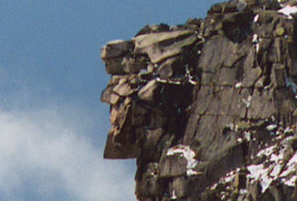
Presenter: Inez McDermott
When the Old Man of the Mountain fell from his perch high above Franconia Notch, on May 3, 2003, it made international news. Many in New Hampshire and beyond responded as though mourning a beloved public figure. This program presents the "story" of the Old Man and examines the ways that public perceptions of the Profile played a role in shaping and establishing New Hampshire's identity, both symbolically and physically. We will discuss the stories of the many people who played a part in "saving" the Old Man, from the risk-taking mountaineers and engineers who kept the ledges in place for so many years, to the school children who gave their pennies to help protect the forest around him. Participants will be encouraged to tell stories of their own encounters with this iconic symbol as we discuss why these granite ledges – the result of a "miraculous accident" according to a state geologist – have played such an outsized role in the hearts of so many.
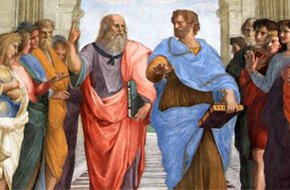
Presenter: Maria Sanders
The ancient Greek philosophers defined eudaimonia as living a full and excellent life. In this illustrated talk, Maria Sanders explores how ideas of happiness have changed in Western civilization through the ages, while comparing and contrasting major concepts of well-being throughout the world. Can money buy happiness? To what extent does engaging in one's community impact happiness? When worldwide surveys of happiness are conducted, why doesn't the U.S. make the top ten? Participants will be invited to discuss various definitions, current measures for assessing self-reported levels of happiness, specific findings reported as increasing people's levels of happiness, and happiness projects undertaken by entire communities - including a town-wide happiness quest in Plymouth, NH.
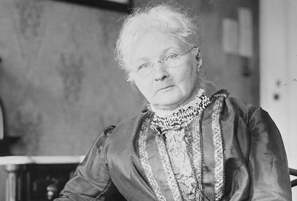
Presenter: Judith Black
This first person interpretive presentation brings alive our nation’s most notorious and effective labor and union organizer, Mary Harris Jones (1830-1930). Mother Jones, as the working people called her, traveled though-out this nation, with nothing more than a small satchel on her back and organized mill and mine workers to stand up for “Their god given rights.” As a female, radical, and labor organizer she broke every mold of her era and laid the groundwork for a workers movement that would effect this nation profoundly for the next seven decades.
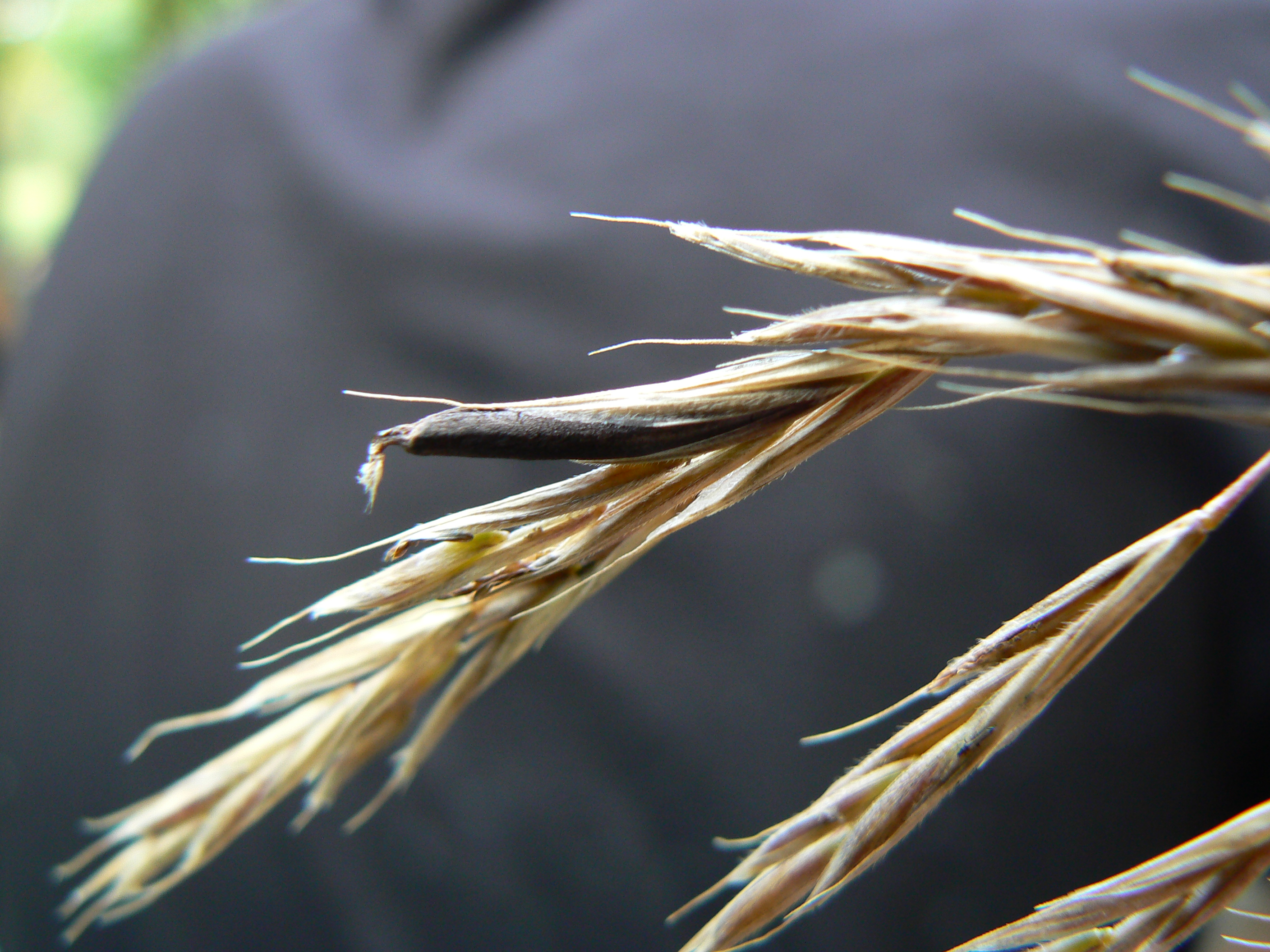
Presenter: Margo Burns
On April 2, 1976, Science Magazine published an article by Linnda R. Caporeal which posited that during the 1692 Salem witchcraft trials, the visions of specters and painful physical sensations described by the girls who claimed to be afflicted by witches could have been caused from eating bread made with flour tainted by ergot, a naturally occurring fungal hallucinogen that grows on rye grain under certain growing conditions. While experts immediately debunked this claim – the historical and medical data used to support the hypothesis was cherry-picked – the claim went viral in a pre-Internet age. More than four decades later, belief in this is still pervasive. This program will unpack how this explanation about a lurid chapter in American history was born and cemented in the public imagination. It is a case study in how mass media induces people to buy into “fake news."
Presenter: Damian Costello
The Stono Rebellion has been called the most important slave revolt in North American history. In this lecture, Damian Costello examines the events and the deep African roots of the 1739 uprising in South Carolina. Recent arrivals from the Kingdom of Kongo drew on drumming traditions, military organization, and Kongolese spirituality to communicate their message of freedom. The high point of the revolt was a ceremonial dance, the sangamento, which fused African precedents and enacted the rebels' call of liberty. Costello will also trace the sangamento tradition in the U.S. and throughout the Americas, and discuss how the Kongolese message of liberty can inform present-day efforts to overcome the lingering effects of our colonial inheritance.
"Damian Costello presented the story of the Stono Rebellion in an easy-to-follow way while explaining the complexities of the cultural, political, and religious factors at play. I think his own wish to learn more about the African people that did make it to Florida and supposedly, freedom, would add an interesting and needed footnote to the story of the Stono Rebellion. I appreciate how Damian Costello recognized that his interest in and telling of this partcular piece of history is related to his personal story and scholarly interests. It's the human part of the humanities which connects us."
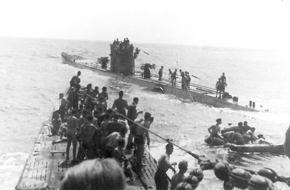
Presenter: Michael Tougias
When a ship the size of the Titanic, the Laconia, was sunk by a U-boat, some of its nearly 3,000 British passengers and Italian POWs were rescued by the very U-boat that sank their ship. Highly unusual, but the story becomes more bizarre. The survivors thought their ordeal of floating in shark-invested ocean was over… until an American plane unleashed its bombs. New York Times bestselling author Michael Tougias Tougias shares the complete account, including the incredible survival story of four British citizens who survived seven weeks adrift at sea with only two tablespoons of water per day and little food.
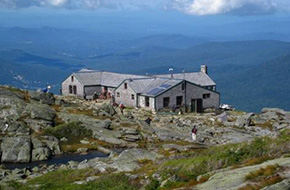
Presenter: Allen Koop
The Appalachian Mountain Club's Hut System is a unique institution in the White Mountains of New Hampshire. Allen Koop explores how the huts and the people who built, maintain and use them have formed a world apart, a mountain society with its own history, traditions, and legends.
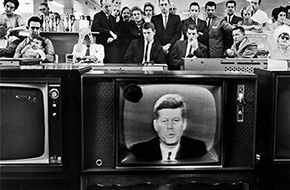
Presenter: Michael Tougias
At the height of the Cold War, two things saved humanity: the strategic wisdom of John F. Kennedy and the U2 aerial spy program. Based on declassified intelligence and interviews with the pilots, Michael Tougias and co-author Casey Sherman's book Above & Beyond: John F. Kennedy and America's Most Dangerous Cold War Spy Mission grounds this conversation about presidential decision-making, nuclear containment, intelligence-gathering, and public information. It's a timely topic given today's concerns about the United States, North Korea and Iran. Tougias gives special emphasis to the U-2 pilots who flew unarmed over Cuba to secure photographic proof that the Soviets were installing nuclear missiles on the Island.
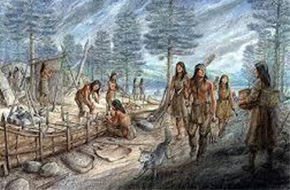
Presenter: John Moody
Every town and watershed in New Hampshire has ancient and continuing Native American history. From the recent, late 20th century explosion of local Native population in New Hampshire back to the era of early settlement and the colonial wars, John Moody explores the history of New Hampshire's Abenaki and Penacook peoples with a focus on your local community.
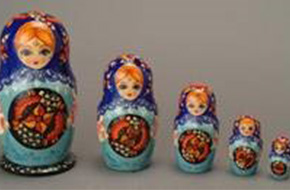
Presenter: Marina Forbes
This beautifully illustrated, interactive presentation by Marina Forbes will feature the history of Matryoshka nested doll making in Russia. Using a fully illustrated show and numerous exhibits, including examples of her own work and from her extensive collection, Forbes will examine the rich folk tradition, the symbolism of the doll’s appearance, and the interesting link between doll making and other traditional Russian art forms. There will be a quick stop at the 1900 World Fair in Paris that made Russian nested dolls and Fabergé eggs famous, followed by an exciting illustrated tour of a working doll-making factory in rural Russia, depicting the various stages in the doll making process. The presentation will conclude with a glorious show of hundreds of examples of the finest Matryoshka artwork available in Russia.
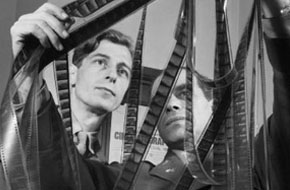
Presenter: Patrick Anderson
Film is a powerful medium, generating billions of dollars and untold hours of entertainment around the world. Understanding how film creates and delivers idea, and how it shapes and reflects popular attitudes, adds to our appreciation of the cinematic experience. Increase your film vocabulary and have fun discussing movies together with film buff and scholar Patrick Anderson.
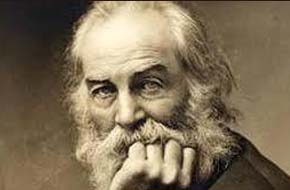
Presenter: Stephen Collins
This program opens with the elderly Whitman on the evening of his seventieth birthday. The audience is a visitor in his room as he prepares for his birthday celebration. Whitman begins to reminisce during the telling. He transforms into his young vibrant self and we begin to trace back with him the experiences that led to the creation of Leaves Of Grass, his lifetime work. The first part of the performance explores Whitman's preoccupation with the self and his resolve to write with "free and brave thought..." In the second part of the performance, Whitman's life is changed forever by the Civil War. It is here that he finds "the most important work of my life," nursing the wounded soldiers in the hospitals. Through Stephen Collins' recitation of poetry and readings of actual letters, we experience Whitman's movement from selfishness toward selflessness and his growth into a mature artist who is at peace about "himself, God and death."

Presenter: David Alcox
Learn about the text of the Declaration of Independence, who the key players were, the Enlightenment influence and if the values espoused in the Declaration are still relevant today. Participants will experience an unbiased look at the Declaration and receive valuable content to understand the influences and ideals of the document. They will be able to critically think about the document and have the knowledge of what it actually says. They will be able to form opinions and speak with conviction about what they learned.


Presenter: Stephen Taylor
Learn how the term "Upper Valley" came to be and how the term became a name for a cluster of towns that are connected in many ways, even though divided by a river and a state line. Deepen your understanding of this history and its relevance to contemporary social and cultural life in the region.
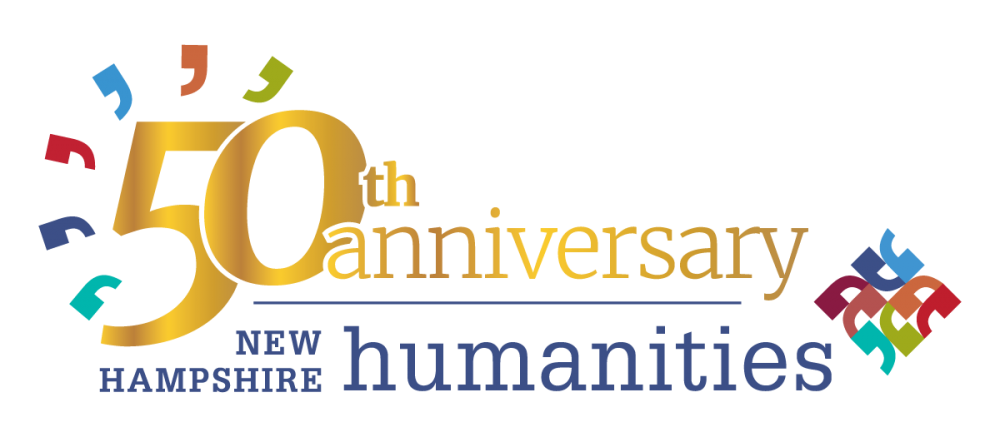
Join us as we celebrate 50 years of bringing the humanities to your community!
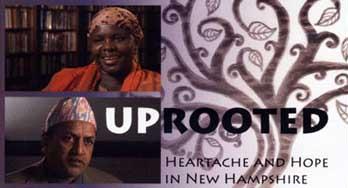
Presenter: John Krueckeberg & Sara Withers
Uprooted is a 30-minute documentary based on interviews collected during New Hampshire Humanities' Fences & Neighbors initiative on immigration. It tells the story of five refugees who escaped from war-torn countries to resettle in New Hampshire. The film explores what it means to be a refugee and how it feels to make a new life in a strange place, often without English language skills, family, a job, or community contacts. The film leaves us pondering questions of belonging and citizenship. What does it mean to be an American? Once a refugee, are you destined always to be a refugee? What are our responsibilities toward one another? A New Hampshire Humanities presenter introduces the film and leads a post-film discussion.
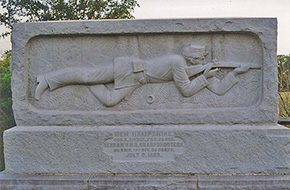
Presenter: George Morrison
From Seabrook to Colebrook, Berlin to Hinsdale, New Hampshire’s towns, individuals, and veterans’ organizations erected a fascinating assortment of memorials to The War of the Rebellion. Beginning with obelisks of the 1860s and continuing to re-mastered works of the 21st century, historian George Morrison presents a diverse selection of New Hampshire’s commemorations and their stories.
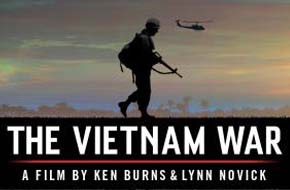
Presenter: Suzanne Brown
The Vietnam War film and discussion program utilizes short videos and a trained facilitator to prompt discussion about the Vietnam era. Content is culled from Ken Burns' and Lynn Novick's PBS documentary, THE VIETNAM WAR, which tells the story of one of the most consequential and divisive events in American history. The videos explore the human dimensions of war that still haunt us today. Witnesses from all sides give their personal testimonies-Americans who fought in the war, those who opposed it, as well as combatants and civilians from North and South Vietnam. These programs are offered in partnership with New Hampshire PBS:
Program 1: THE VIETNAM WAR: Diverse Perspectives This 28-minute video includes war stories told by an American journalist; an anti-war activist; an American author and combat soldier; a Vietnamese author and soldier of the North Vietnamese Army; Hero Mothers; a South Vietnamese refugee; an ARVN officer; and several U.S. Marines.
Program 2: THE VIETNAM WAR: Veteran Voices This 21-minute video features war stories told by American, North Vietnamese, and South Vietnamese soldiers. One story explores moral injury by following a disabled Vietnam Marine veteran who supports young warriors deployed during the Iraq and Afghanistan conflicts.
The two videos must be booked as separate Humanities To Go programs. The host site must provide a DVD or Blu-ray player.
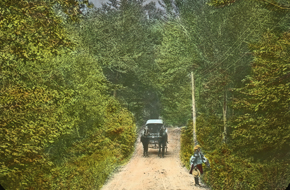
Presenter: Jeffrey Zygmont
Robert Frost’s poetry offers an intimate look at nature. In this program, author and poet Jeffrey Zygmont recites a selection of Frost’s nature poems, including some of his best-known works. Alongside each recitation, he provides background on Frost’s life, offering insight into the poem’s origins, and its significance. Participants will join in a lively discussion and celebration of Frost’s work that will deepen their appreciation for both the poet and New Hampshire’s natural environment.
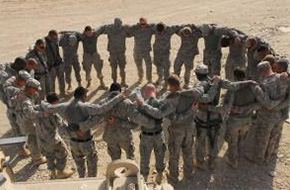
Presenter: Kent McConnell
How and why are wars fought? What exactly is a just war? This program looks at the history of "just war theory," starting in antiquity and following the development of three major elements of just war thinking: jus ad bellum (the right to war), jus in bello (the laws of war), and jus post bellum (justice after war). Highlighting the work of philosophers Larry May, Michael Walzer, and Richard Norman, Kent McConnell focuses discussion on the philosophical and theological foundations of just war thinking and non-violence.

Presenter: James Kelly
Science fiction writers bear some responsibility for the popular misconceptions about AI and robots. As penance, this presenter will review the history of AI in fact and fiction and then offer a realistic overview of its astonishing potential. The future of AI is hurtling toward us and it’s time to explore the steps we can take to protect our privacy and livelihoods.
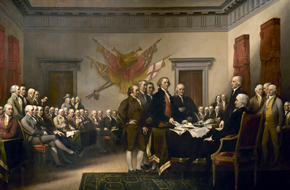
Presenter: Meg Mott
The Declaration of Independence acknowledges a most volatile right: the people's right to rebel. If the people are not happy with their government, then it is within their unalienable rights to "alter and abolish it." In 1776, that right was exercised through armed rebellion. But is that the only way to exercise that right?
In 1963, John Lewis envisioned a different sort of revolution, one that would achieve the ends of freedom and liberty through non-violent means. In this "unfinished revolution," he argued, current enemies are seen as future friends. We'll consider how the language of the Declaration guides social movements, across the political spectrum, to institute a government that seems most likely to protect each other's unalienable rights.

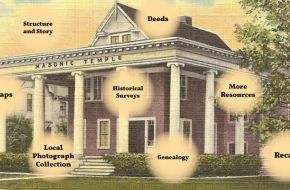
Presenter: Erin Moulton
The best thing about tracking down the history of a house is that your research subject usually stays in one place! House history projects give us the opportunity to access local historical resources such as newspapers, maps, deeds, city directories, and more. This avenue of research allows us to uncover architecture, neighborhoods, and people of the past. Join us as we track the records of a Masonic Lodge and delve into the history that is underfoot each day.
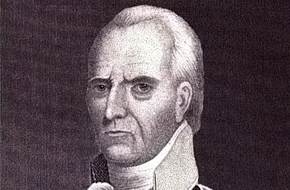
Presenter: George Morrison
While many are familiar with the state motto “live free or die,” few might know about the man, General John Stark, who uttered these words. In this presentation, George Morrison reveals the man – a ransomed captive, Ranger officer, road-builder, lumberman, husband and father, repeatedly called-on to serve but often clashing with authority -- whose phrase has become synonymous with our state.

Presenter: Joshua Duclos
Democracy is taken to be an obvious good. It often seems like the one thing we can agree on in a political debate. After all, only dictators and fools question the value of democracy...right? And yet, the value of democracy has been challenged again and again throughout history. Great philosophers from Plato to Confucius thought it was a terrible idea, and many contemporary Western political theorists have speculated that democracy may not be as useful or moral as we suppose. For those who believe in the value of democracy (its efficacy and its morality), it is important to analyze, articulate, and explore the arguments in which democracy is grounded. This talk will do three things: (1) explain what democracy is; (2) explain why serious historical and contemporary thinkers have distrusted democracy; and (3) explore the best contemporary arguments in favor of democracy.

"Josh was by far one of the best presenters we've had...Participants stayed in discussion well after his talk was finished and even into the next weeks casual gatherings. So much to think about!"
-HTG Host
|
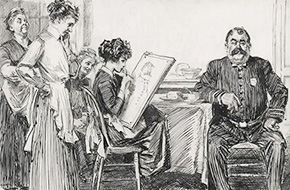
Presenter: Jo Radner
Whatever did New Englanders do on long winter evenings before cable, satellite and the internet? In the decades before and after the Civil War, our rural ancestors used to create neighborhood events to improve their minds. Community members male and female would compose and read aloud homegrown, handwritten literary "newspapers" full of keen verbal wit. Sometimes serious, sometimes sentimental but mostly very funny, these "newspapers" were common in villages across Maine, New Hampshire and Vermont and revealed the hopes, fears, humor and surprisingly daring behavior of our forebears. Jo Radner shares excerpts from her book about hundreds of these "newspapers" and provides examples from villages in your region.
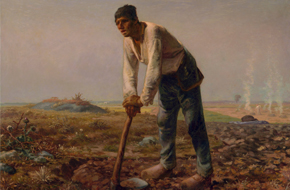
Presenter: Maura MacNeil & Inez McDermott
Ekphrastic poetry is inspired by visual art. It enhances the reader's understanding and appreciation of the poetic arts, and inspires further insights and interpretation through personal response. In this interactive discussion and workshop, poet Maura MacNeil and art historian Inez McDermott will introduce examples of ekphrastic poetry responding to artworks by old masters and modern artists. Workshop participants will learn about the history of this literary form, read and discuss some well-known ekphrastic poems, and engage in writing an ekphrastic poem of their own. Those attending are welcome to bring a printed image of a favorite artwork, or one will be provided. No experience with creative writing or art history is required.
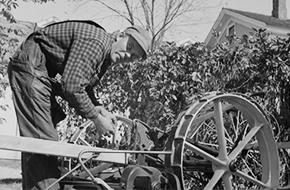
Presenter: Jo Radner
Jo Radner shares a selection of historical tales-humorous and thought-provoking-about New Englanders who have used their wits in extraordinary ways to solve problems and create inventions. The stories are engaging and entertaining, but also may raise some profound questions about our admiration of ingenuity and about the ethics of pursuing discoveries without taking their potential outcomes into account. The performance will include discussion with the audience, and may introduce a brief folktale or a poem about inventiveness and problem-solving.
Back to Humanities to Go Details